The Bookshop
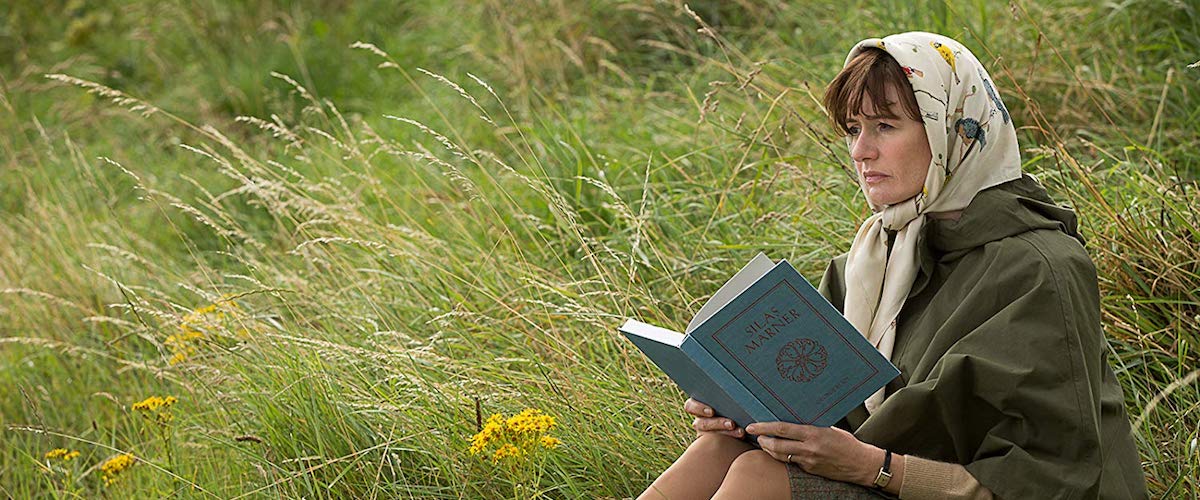
Having all the right ingredients does not always make a good cake, or, given the setting of this film, I should perhaps say a bread pudding with just the right proportions of chewy and creamy. “The Bookshop” is based on a novel by Penelope Fitzgerald and it stars actors who are loved on both sides of the Atlantic: Emily Mortimer , Bill Nighy , Patricia Clarkson . It has an adorably quaint setting, a 1950s-’60s seaside town in England. It features books and shops and has as its heroine a brave widow who loves to read and is willing to stand up to the village doyenne, one of those villains whose superficial graciousness and courtesy are only cover for ruthlessness and fury. And the screenplay is written by director Isabel Coixet , whose 2003 quiet gem “ My Life Without Me ” was exceptionally sensitive and moving.
So we come to it with high expectations and it is especially disappointing that this movie never comes together.
Mortimer plays Florence Green, whose husband was killed in WWII. She met him in a bookstore, and she dreams of opening one of her own in an old abandoned building in a small East Anglian town. She is patient but firm in her dealings with the lawyer and banker who clearly think she should not be worrying her pretty head about business. When the banker tells her that he does not think anyone will buy books because he falls asleep after reading two or three pages every night, she cheerfully replies that he has just proven the value of books.
Florence underestimates how formidable a foe she has in Violet Gamart (Clarkson), the wife of a retired general who treats the village as though it was under her command. Wearing gold lame and a slash of bright red lipstick, with a long, thin pink cigarette elegantly poised between her fingers, she tells Florence, “I believe I can spare you many disappointments and maybe a bit of money,” meaning, “I will do whatever it takes to boot you out.”
The narrator intones, “Florence had managed to live life thus far by pretending that human beings were not divided into exterminators and exterminating, with the former at any moment predominating,” one of many instances of telling instead of showing or, even worse, telling on top of showing.
Florence moves her bookshop into the old house, and moves herself in as well. And the narrator intrudes again to let us know that this moment would be her happiest in the shop, telling us before showing us, which is worst of all. Though beautifully read by an unseen and un-credited Julie Christie , the narration is unnecessary and distracting, only reminding us that an audible version of the original book with Christie’s voice would be a much more suitable adaptation.
This is a particular letdown for fans of period British drama, who love nothing more than settling in to watch a story about people who wear wellies and cardies to walk through picturesque cobblestone roads on their way to chat over cozy-covered teapots. Mortimer and Nighy are captivating as always, and so it takes a while to realize that the many slow pauses are not adding up to much. There is a build-up to Florence’s decision to sell the controversial Lolita, but it does not really go anywhere, either. While Fitzgerald wanted to explore small town small-mindedness and petty politics, it is fair to expect that a movie about a bookshop that has three characters commenting that they do not like reading will at least find one of them at some point captivated by a book, perhaps even Lolita .
Most grating is one of those impossibly precocious child characters who is completely unconvincing as anything but a writer’s shortcut for narrative convenience. And Nighy is burdened with a reclusive, book-loving character whose quirks are intended to be endearing, but even he cannot make it work. He tells Florence to go ahead and buy 250 copies of Lolita for the village: “They won’t understand it, but that’s all for the best. Understanding makes the mind lazy.” Not every story about a woman moving to town to open up a controversial shop has to be as endearing as “Chocolat.” But movies, like reading, should expand our ability to understand, and this one does not even understand itself.

Nell Minow is the Contributing Editor at RogerEbert.com.

- Frances Barber as Jessie
- Hunter Tremayne as Mr. Keble
- Honor Kneafsey as Christine
- James Lance as Milo North
- Bill Nighy as Mr. Brundish
- Emily Mortimer as Florence Green
- Patricia Clarkson as Mrs. Violet Gamart
- Reg Wilson as General Gamart
- Michael Fitzgerald as Mr. Raven
- Alfonso de Vilallonga
- Bernat Aragonés
- Isabel Coixet

Cinematographer
- Jean-Claude Larrieu
Writer (novel)
- Penelope Fitzgerald
Leave a comment
Now playing.
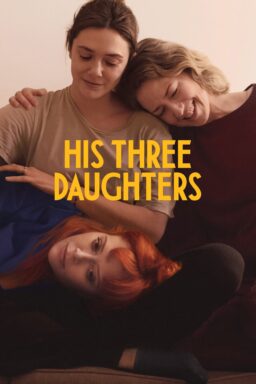
His Three Daughters
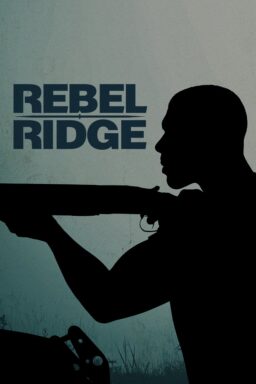
Rebel Ridge
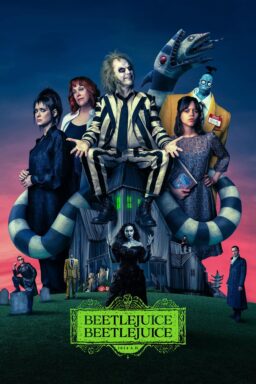
Beetlejuice Beetlejuice
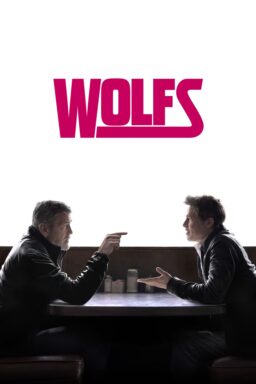
Piece by Piece
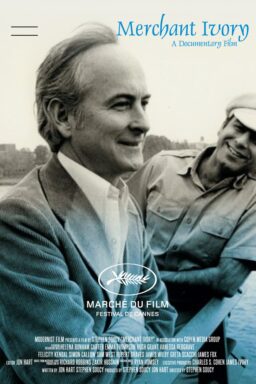
Merchant Ivory
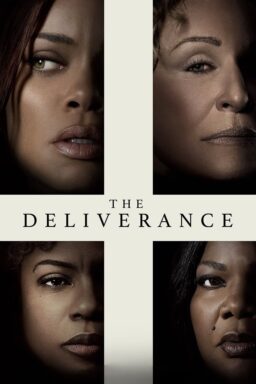
The Deliverance
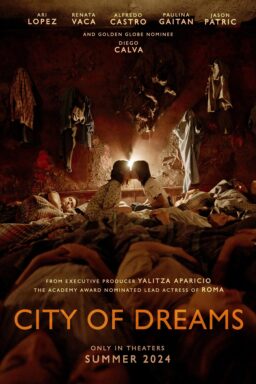
City of Dreams

Out Come the Wolves

Seeking Mavis Beacon

Latest articles
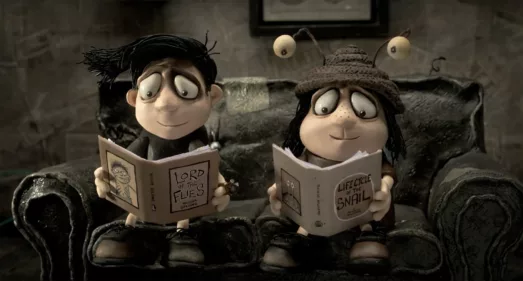
Telluride Film Festival 2024: Memoir of a Snail, Better Man, The White House Effect

Telluride Film Festival 2024: Blink, Apocalypse in the Tropics, Carville: Winning is Everything, Stupid!
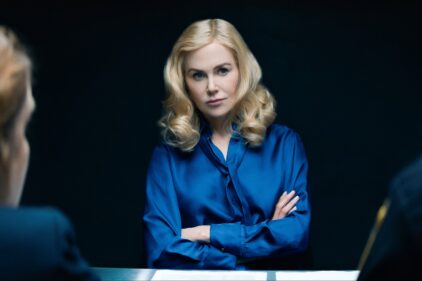
“The Perfect Couple” Retreads Better Shows About Bad Rich People

Sony’s “Astro Bot” is a Joyous Gaming Experience
The best movie reviews, in your inbox.
Review: ‘The Bookshop’ is a poignant parable about power, words and suppression
- Copy Link URL Copied!
“The Bookshop,” based on the 1978 novel by Penelope Fitzgerald, is a far more somber, measured outing than its quaint and cozy title may at first imply.
Within its staid snapshot of aspiration versus tradition in small-town, postwar England, lies a profoundly resonant parable about power, words and suppression. That the 1959-set film’s erstwhile themes prove so vital at this unusually fraught point in time speaks volumes.
Although it’s anchored by a deeply felt performance by the wonderful Emily Mortimer, with a marvelous supporting turn by the always-welcome Bill Nighy, the film, scripted and directed by Spanish filmmaker Isabel Coixet (“Elegy,” “Learning to Drive”), is at times a bit too mustily mounted and told to keep us as fully immersed as we might like.
Mortimer plays Florence Green, an idealistic, quietly resolute widow whose beloved soldier husband died 16 years ago in World War II. Perhaps to honor his memory (they met in a bookshop) as well as her love of literature, Florence decides to open a bookstore in the lovely, if rather hermetic and gossipy coastal community of Hardborough. (Northern Ireland subbed for the fictional English locale).
But that’s easier said than done as Florence encounters a series of legal, financial and societal obstacles before and, more importantly, after she turns a dank, rundown structure known as the Old House into an inviting, nicely stocked little book emporium and make-do home.
For Florence, the more local opposition she meets, the more she digs in her sensible heels. And, for awhile at least, she makes a go of the store with the part-time help of feisty local schoolgirl Christine (Honor Kneafsey), who although not as yet a fan of reading, totally has Florence’s back.
Another of her great supporters is the reclusive Edmund Brundish (Nighy), a seemingly well-off widower and bibliophile pleased there will finally be a more proximate way to quench his literary thirst. That is, if the store can deliver.
Florence and the erudite Brundish develop an increasingly warm and appreciative relationship via letters and, later, in person, as the bookseller introduces him to such key tomes of the times as “Fahrenheit 451” and, more problematically, “Lolita.” The initial face-to-face between these two longing souls is one of the film’s most well-realized moments.
The chief thorn in Florence’s side, however, is Violet Gamart (Patricia Clarkson), a wealthy, delicately ruthless grand dame who, for reasons that have more to do with power than intellectual fervor, claims that she wants to turn the Old House into an arts center — and will stop at nothing to have her way.
If Violet may not be the most well-developed character, often more symbolic and predictable than truly flesh-and-blood (the deft Clarkson tries, but it’s a tough role to nail), she’s still a chilling reminder of the kind of status-, and status quo-, seeking prigs who, to this day, lie in wait to derail smart, independent thinkers like Florence.
Milo (James Lance), a foppish ne’er-do-well who befriends Florence with one hand and undermines her with the other, also factors in with mixed results, an amusingly repellent hanger-on whose base motives are never all that clear.
Coixet’s inclusion of voice-over may hark back to the novel but it can often feel superfluous, telling us what we either already are or should be seeing. That it’s delivered with such finesse by the great Julie Christie (who starred in the 1966 film version of “Fahrenheit 451” — coincidence or not?) is a plus, particularly when it stirringly pays off in the end.
Ultimately, despite its flaws, the film possesses such a clear passion and advocacy for writing, knowledge and personal expression that it emerges as a largely worthy and poignant accomplishment, especially given the vanishing state these days of that beloved institution known as the bookshop.
-------------
‘The Bookshop’
Rated: PG, for some thematic elements, language, and brief smoking
Running time: 1 hour, 53 minutes
Playing: Starts Aug. 24, the Landmark, West Los Angeles
More to Read

Review: L.A.’s Thai cuisine is always evolving. Find the next big leap in Atwater Village
Aug. 15, 2024

Review: Gender-swapped ‘Company’ revival dazzles, capturing the spirit of Sondheim
Aug. 3, 2024

Review: ‘Clue: Live on Stage’ reinvigorates the 1985 movie with mindless fun
Aug. 1, 2024
Only good movies
Get the Indie Focus newsletter, Mark Olsen's weekly guide to the world of cinema.
You may occasionally receive promotional content from the Los Angeles Times.
More From the Los Angeles Times

Move over, Michael Douglas. Michael Keaton wants to start using his real name
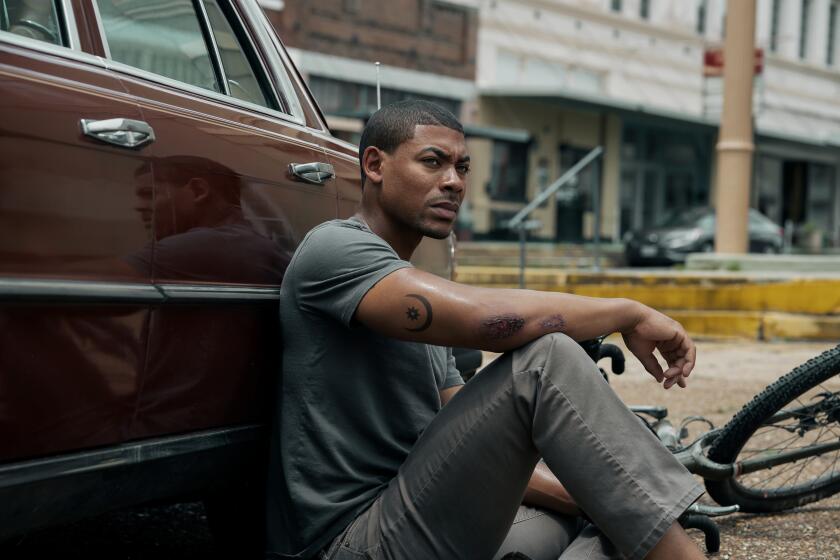
Review: Star-making performance propels Netflix revenge thriller ‘Rebel Ridge’
Sept. 5, 2024

Not just ‘Bonjour Tristesse’ with cellphones: At TIFF, a classic gets a modern update

Anderson .Paak called in big-name favors to make ‘K-Pops’ sing: ‘I owe a lot of people’
The Definitive Voice of Entertainment News
Subscribe for full access to The Hollywood Reporter
site categories
‘the bookshop’: film review.
Emily Mortimer, Bill Nighy and Patricia Clarkson star in Isabel Coixet's adaptation of Penelope Fitzgerald's 1978 novel 'The Bookshop,' about a woman's struggles to bring a bit of literary culture to an English town that badly needs it.
By Jonathan Holland
Jonathan Holland
- Share on Facebook
- Share to Flipboard
- Send an Email
- Show additional share options
- Share on LinkedIn
- Share on Pinterest
- Share on Reddit
- Share on Tumblr
- Share on Whats App
- Print the Article
- Post a Comment
If “restrained,” “melancholy,” “subtle” and “stereotypically English” are the qualifiers that spring to mind when you learn that Isabel Coixet’s latest is about a widow setting up a bookstore in a quiet coastal town in the 1950s , then you’re only getting half the story of The Bookshop . Its subversive undercurrent, embodied in fine performances by Emily Mortimer and Bill Nighy , is what makes it really interesting.
Pretty faithful throughout to the Penelope Fitzgerald novel from which it’s sourced, and sustained by a cast which is well capable of suggesting the psychological subtlety of the original, The Bookshop shows that, for the moment at least, the uneven maverick Coixet is back in form. Initial box office in Spain has been positive, and the fact that there’s always a market somewhere for hand-crafted, quintessentially English fare — perhaps even more so in these troubled times — suggest that this one is unlikely just to sit there gathering dust.
Related Stories
James mcavoy's directorial debut about hip hop hoax sells to studiocanal for u.k., 5 new restaurants not to miss at tiff.
Coixet has long been interested in women who take risks to do the right thing. This time it’s the turn of Florence Green (Emily Mortimer), 16 years a war widow, who fetches up in the seaside town of Hardborough in the county of Suffolk with the aim of setting up a bookshop in a rundown property, the Old House, which she’s bought. Florence’s never-explicitly stated reason for wanting to do so is that she met her husband in a bookshop, an event fleetingly hinted at early on.
At one of those massively awkward, stilted dinner parties at which the English apparently excel, Florence encounters local bigwig Violet Gamart ( Patricia Clarkson , working for the third time with Coixet ), her hair plastered tight against her scalp, smoking evilly at windows, endlessly calculating. This is the kind of film in which the smilingly uttered words “why don’t you think it over?” actually mean “if you dare to challenge me, my dear, then I shall quite simply ruin your life.” Violet wants to use the old house as an arts center; Apparently for no reason other than that she enjoys exercising her power, she will stop at nothing to achieve it, going so far as to pull strings in Parliament to fulfill her aim.
Local recluse and widow Mr. Brundish (a compellingly quiet and intense Nighy ), around whom local gossip comically swirls, is sympathetic to Florence’s cause, sensing that Hardborough needs her. Brundish emerges from years of solitude into a brief, middle-aged flirtation with Florence which teeters elegantly on the edge of being an affair without actually becoming one.
As romances go, this is so exquisitely restrained that it makes Brief Encounter look like Debbie Does Dallas . Their trembling, murmured first interview is knockout stuff, two fine actors, both playing bereaved lovers, taking all the time they need and playing off one another to suggest an ocean of pain: the sigh emitted by Brundish after it will be echoed by audiences. “You make me believe once more in things I’d long forgotten,” he tells Florence, and he might even be talking about love. They meet only twice, but we wish it could have been more.
Florence also meets a feisty little girl, Christine (Honor Kneafsey ), who helps her out at the shop, as well as the glistening-haired, clear-eyed Milo North — in the latter case, without any noticeable advancement of either character or plot. Though Lance has fun playing a bounder and cad of the first order, the script doesn’t particularly need him.
Like the novel, The Bookshop teems with ideas. Some are old-hat: we’ve regularly been reminded since Jane Austen, for example, that rural villages can be petty-minded, spiteful places. But both Fitzgerald’s novel and Coixet’s adaptation also have resonances for the 2000s , among them the question of how it is possible, in a world driven by gossip (read “fake news”) that books and reading can have become so devalued. “Thank you for introducing me to Ray Bradbury,” Brundish tells Florence, and indeed Fahrenheit 451 ’s subversive, free spirit (and less convincingly that of Lolita ) can be felt throughout, suggesting that a world without books — in this case Hardborough — is a pretty nasty, ego-driven place to be. What a shame that we live there.
Mortimer follows the novel’s lead in portraying Florence as an intriguing mixture of social insecurity and quiet determination, driven in her pursuit of a dream that should be perfectly achievable but, thanks to moral and cultural Philistinism, is not. As the obstacles mount up, Florence starts to look like an oasis of sanity.
Classically structured and assembled as befits its subject, the film’s only concession to stylistic flamboyance comes when Brundish is seen reading to camera letters he’s sent to Florence. This may seem clumsy, but in a film which is so much about the power of the written word to stir us, it works very well, and gives Nighy a further opportunity to shine as Brundish , in his splendid isolation.
In a wonderfully apt touch, the voiceover is delivered by Julie Christie, who starred in Truffaut’s version of Fahrenheit 451 . Often drawn directly from Fitzgerald’s novel, it does adds shade and context to some scenes, but is sometimes unnecessary. The same can be said of Alfonso de Vilallonga’s score, which is better during the melancholy sequences, but cliched when it’s striving to be perky. Some nuances are missing: Christine is probably too frightfully well spoken for the daughter of a working-class 1950s woman in an eastern English county, and indeed regional accents are lacking entirely. But visually, the attention to period detail from Marc Pou seems faultless.
Production companies: A Contracorriente Films, Diagonal TV, Zephyr Films, ONE TWO Films, Green Films Cast: Emily Mortimer, Patricia Clarkson, Bill Nighy , Honor Kneafsey , James Lance Director-screenwriter: Isabel Coixet , based on the novel by Penelope Fitzgerald Producers: Jaume Banacolocha , Joan Bas, Adolfo Blanco, Sol Bondy , Chris Curling, Jamila Wenske Executive producers: Manuel Monzon , Paz Recolons , Fernando Riera , Albert Sagales Director of photography: Jean-Claude Larrieu Production designer: Marc Pou Costume designer: Merce Paloma Editor: Bernat Aragones Music: Alfonso de Vilallonga Casting: Jeremy Zimmermann Sales: Celsius
112 minutes
THR Newsletters
Sign up for THR news straight to your inbox every day
More from The Hollywood Reporter
Norman spencer, david lean collaborator and ‘vanishing point’ producer, dies at 110, longtime friends will ferrell and harper steele grow even closer in ‘will & harper’ trailer, toronto hidden gem: ‘village keeper’ examines the challenges of ending cycles of abuse, the record-breaking kiss that nearly broke pee-wee herman, you can’t scare mike flanagan. can you, ‘the front room’ review: brandy norwood shines in a24’s offbeat psychological horror movie.
🙌 Awesome, you're subscribed!
Thanks for subscribing! Look out for your first newsletter in your inbox soon!
Get us in your inbox
Sign up to our newsletter for the latest and greatest from your city and beyond
By entering your email address you agree to our Terms of Use and Privacy Policy and consent to receive emails from Time Out about news, events, offers and partner promotions.
Awesome, you're subscribed!
The best things in life are free.
Sign up for our email to enjoy your city without spending a thing (as well as some options when you’re feeling flush).
Déjà vu! We already have this email. Try another?
Love the mag?
Our newsletter hand-delivers the best bits to your inbox. Sign up to unlock our digital magazines and also receive the latest news, events, offers and partner promotions.
- Things to Do
- Food & Drink
- Arts & Culture
- Time Out Market
- Coca-Cola Foodmarks
- Los Angeles

- Recommended
The Bookshop
Emily Mortimer shines in this gentle adaptation of Penelope Fitzgerald’s novel.

Time Out says
Penelope Fitzgerald wrote stories about the quietly devastating lives of seemingly insignificant people. ‘The Bookshop’ is the story of meek widow Florence Green (Emily Mortimer) who, in 1959, opens a store in a sleepy Suffolk seaside town. Reclusive widower Edmund Brundish (Bill Nighy) is among the few who greet the newcomer warmly, but others, including well-connected busybody Mrs Gamart (Patricia Clarkson), do everything in their power to see her fail – especially when she decides to order a large quantity of a certain controversial novel by Vladimir Nabokov.
‘Elegy’ director Isabel Coixet’s draws fine performances from an enticing cast, nailing the buttoned-down bleakness of the period and aching ennui of the setting. But while she wisely dispenses with the book’s supernatural elements, her adaptation is overly faithful. Fitzgerald’s prose is even quoted in voiceover.
This slavish fidelity leaves acres of screen time devoted to insignificant scenes, while Florence’s conflict with Mrs Gamart never reaches its full potential. Nighy, too, is largely wasted – surely an offence punishable under English statute. Thankfully, Mortimer’s tender, sympathetic performance mitigates these shortcomings, even if the film itself is something of a dramatic damp squib.
Release Details
- Release date: Friday 29 June 2018
- Duration: 113 mins
Cast and crew
- Director: Isabel Coixet
- Screenwriter: Isabel Coixet
- Emily Mortimer
- Patricia Clarkson
Been there, done that? Think again, my friend.
Discover Time Out original video
- Press office
- Investor relations
- Work for Time Out
- Editorial guidelines
- Privacy notice
- Do not sell my information
- Cookie policy
- Accessibility statement
- Terms of use
- Modern slavery statement
- Manage cookies
- Advertising
Time Out Worldwide
- All Time Out Locations
- North America
- South America
- South Pacific
Common Sense Media
Movie & TV reviews for parents
- For Parents
- For Educators
- Our Work and Impact
Or browse by category:
- Movie Reviews
- Best Movie Lists
- Best Movies on Netflix, Disney+, and More
Common Sense Selections for Movies

50 Modern Movies All Kids Should Watch Before They're 12

- Best TV Lists
- Best TV Shows on Netflix, Disney+, and More
- Common Sense Selections for TV
- Video Reviews of TV Shows

Best Kids' Shows on Disney+

Best Kids' TV Shows on Netflix
- Book Reviews
- Best Book Lists
- Common Sense Selections for Books

8 Tips for Getting Kids Hooked on Books

50 Books All Kids Should Read Before They're 12
- Game Reviews
- Best Game Lists
Common Sense Selections for Games
- Video Reviews of Games

Nintendo Switch Games for Family Fun

- Podcast Reviews
- Best Podcast Lists
Common Sense Selections for Podcasts

Parents' Guide to Podcasts

- App Reviews
- Best App Lists

Social Networking for Teens

Gun-Free Action Game Apps

Reviews for AI Apps and Tools
- YouTube Channel Reviews
- YouTube Kids Channels by Topic

Parents' Ultimate Guide to YouTube Kids

YouTube Kids Channels for Gamers
- Preschoolers (2-4)
- Little Kids (5-7)
- Big Kids (8-9)
- Pre-Teens (10-12)
- Teens (13+)
- Screen Time
- Social Media
- Online Safety
- Identity and Community

How to Help Kids Build Character Strengths with Quality Media
- Family Tech Planners
- Digital Skills
- All Articles
- Latino Culture
- Black Voices
- Asian Stories
- Native Narratives
- LGBTQ+ Pride
- Best of Diverse Representation List

Multicultural Books

YouTube Channels with Diverse Representations

Podcasts with Diverse Characters and Stories
The bookshop.

- Common Sense Says
- Parents Say 5 Reviews
- Kids Say 1 Review
Common Sense Media Review

Bittersweet period drama about the joys of reading.
Parents Need to Know
Parents need to know that The Bookshop is a slow but poignant period drama based on British author Penelope Fitzgerald's novel about a widow (Emily Mortimer) who opens a bookstore in a small English town. Aside from brief drinking and smoking, a sudden (but nonviolent) death, and a scene in which someone…
Why Age 10+?
Adults drink wine, champagne, and cocktails at a party. Brief shot of an adult s
A man keels over and dies abruptly, presumably of a heart attack. A widow tells
Romantic tension; one scene in which a man and a woman touch heads and nearly (b
A few rude/insult words, including "shut up," "little shrimp," "that harpy," "bl
Any Positive Content?
Promotes reading, importance of exchanging ideas and thoughts about literature,
Florence is determined, persevering, smart, caring, kind. She befriends, mentors
Drinking, Drugs & Smoking
Adults drink wine, champagne, and cocktails at a party. Brief shot of an adult smoking.
Did you know you can flag iffy content? Adjust limits for Drinking, Drugs & Smoking in your kid's entertainment guide.
Violence & Scariness
A man keels over and dies abruptly, presumably of a heart attack. A widow tells how her husband died in the war. Someone purposely starts a fire that destroys a building, but no people are hurt. Arguing/yelling.
Did you know you can flag iffy content? Adjust limits for Violence & Scariness in your kid's entertainment guide.
Sex, Romance & Nudity
Romantic tension; one scene in which a man and a woman touch heads and nearly (but don't) kiss/embrace.
Did you know you can flag iffy content? Adjust limits for Sex, Romance & Nudity in your kid's entertainment guide.
A few rude/insult words, including "shut up," "little shrimp," "that harpy," "bloody time."
Did you know you can flag iffy content? Adjust limits for Language in your kid's entertainment guide.
Positive Messages
Promotes reading, importance of exchanging ideas and thoughts about literature, the power of bookstores to contribute to independent thought. It's also about standing up for what you believe even in the face of strong opposition.
Positive Role Models
Florence is determined, persevering, smart, caring, kind. She befriends, mentors Christine, doesn't back down when faced with the more powerful and well-connected Violet. Edmund is a loyal, intelligent supporter of the bookstore and of Florence personally. Christine is clever and brave.
Parents need to know that The Bookshop is a slow but poignant period drama based on British author Penelope Fitzgerald's novel about a widow ( Emily Mortimer ) who opens a bookstore in a small English town. Aside from brief drinking and smoking, a sudden (but nonviolent) death, and a scene in which someone starts a fire that destroys a building but doesn't hurt anyone, there's little iffy content to worry about. Characters do yell at/intimidate each other, but there's no physical violence. Language is limited to "shut up," "little shrimp," "that harpy," "bloody time," and the like. The plot and themes are a bit mature for younger kids, but tweens and up who enjoy period dramas and movies about books will find this an appealing if bittersweet tale about the importance of persevering and how you're never really alone when surrounded by books and those who love them. To stay in the loop on more movies like this, you can sign up for weekly Family Movie Night emails .
Where to Watch
Videos and photos.

Parent and Kid Reviews
- Parents say (5)
- Kids say (1)
Based on 5 parent reviews
Beautifully shot.
Nonsensical pg rating. it's a g., what's the story.
THE BOOKSHOP takes place in 1959 in the fictional East Anglian coastal English town of Hardborough, where a youngish war widow named Florence Green ( Emily Mortimer ) uses her savings to start a bookshop in an old, unoccupied building on the town's high street. But Florence's decision to convert the damp, ancient Old House into her home and business runs afoul of local grande dame Violet Gamart ( Patricia Clarkson ), who believes the house should be used as an "arts center." Florence hires local tween Christine ( Honor Kneafsey ) as an after-school employee and discovers that rich hermit Edmund Brundish ( Bill Nighy ), who prefers books to people, is thrilled to be her best customer (although they communicate primarily via letters). Florence asks for Edmund's advice about whether she should stock Vladimir Nabokov's controversial novel Lolita and continues to ruffle Violet's feathers. What will happen when Violet pulls rank?
Is It Any Good?
This subdued period adaptation starring the wonderful Mortimer celebrates the magic of books and bookstores. Mortimer is one of Hollywood's many underappreciated character actresses over 40, and it's a pleasure to see her in a leading role. She's able to convey much with the slightest widening of her eyes and straightening of her posture, and her work here is notably good. And the always excellent Clarkson doesn't disappoint in playing a polite but ruthless doyenne who will get her way no matter what; she's a pro at delivering rich, cruel, self-absorbed characters. Nighy, who's just as versatile as the women in the cast, is utterly believable as Edmund, a gentleman bibliophile who spends all his time with fictional people so he doesn't have to deal with the disappointment of real ones.
Still, The Bookshop is slow in parts, and the plot is far from the typical underdog story. Were this an American production, the end would no doubt be considerably more upbeat. But this European film (English setting, Spanish director) doesn't offer any pat happily ever afters. Quite the opposite -- there's a surprising sadness that pervades the last third of the movie, as Florence's quest to keep the bookstore begins to seem doomed. This is a low-key story with a simple storyline that proves how petty the rich and powerful and how oppressive small towns can be, but it's worth watching for Mortimer's performance and for the reminder to celebrate independent bookstores in our communities.
Talk to Your Kids About ...
Families can talk about The Bookshop 's message about the importance of reading . How do books impact or change the characters' lives?
Who are the role models in the movie? What character strengths do they display? How does Florence persevere ?
How does the time period of the setting impact the movie's story? Could the movie be translated to today? Why or why not?
Movie Details
- In theaters : August 24, 2018
- On DVD or streaming : January 15, 2019
- Cast : Emily Mortimer , Patricia Clarkson , Bill Nighy
- Director : Isabel Coixet
- Inclusion Information : Female directors, Female actors
- Studio : Greenwich Entertainment
- Genre : Drama
- Topics : Book Characters , Friendship
- Character Strengths : Perseverance
- Run time : 113 minutes
- MPAA rating : PG
- MPAA explanation : some thematic elements, language, and brief smoking
- Last updated : March 31, 2022
Did we miss something on diversity?
Research shows a connection between kids' healthy self-esteem and positive portrayals in media. That's why we've added a new "Diverse Representations" section to our reviews that will be rolling out on an ongoing basis. You can help us help kids by suggesting a diversity update.
Suggest an Update
What to watch next.

The Guernsey Literary and Potato Peel Pie Society

You've Got Mail

Notting Hill
Classic books for kids, books that teach empathy, related topics.
- Perseverance
- Book Characters
Want suggestions based on your streaming services? Get personalized recommendations
Common Sense Media's unbiased ratings are created by expert reviewers and aren't influenced by the product's creators or by any of our funders, affiliates, or partners.

The Bookshop: A New Outstanding Period Drama to Watch
The bookshop review.
Some movies grab the viewer and draw you in. The Bookshop is one of those movies. Based on the novel by Penelope Fitzgerald of the same name, this story follows a widow in 1950’s England, who decides to open a bookshop in her tiny English town. Why a bookshop? Because, as Florence Green, our intrepid heroine tells us, you never feel alone in a bookshop. Plus, Florence met her beloved husband while they were working in a bookshop and is quite fond of the written word.
Florence Green wants to buy a house, in town, called The Old House and make it into a bookshop. Her town does not have a bookshop and she is passionate about reading after all. Of course, not everyone in Florence’s small-town thinks that her bookshop is a good idea. Mrs. Violet Gamart, a wealthy pillar of local society, has been eyeing the Old House for an Arts Center, and others, including Florence’s solicitor, are concerned if Florence can handle running a business on her own.
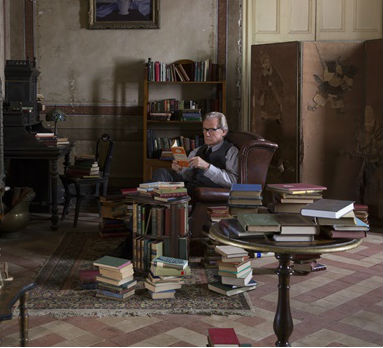
Florence’s spirit proves hardy, however, and the shop, The Old House Bookshop, opens. This introduces her to Christine, who works for her, and reclusive bookworm widower Mr. Edmund Brundish, who is thrilled to discover the works of Ray Bradbury. I don’t want to tell you any more about him, because his story unfolds in a fun way, and I would hate to spoil that for you.
RELATED: The Englishman Who Went Up a Hill, But Came Down a Mountain Review
Although many in town do come around to the idea of a bookshop, Mrs. Gamart is not one of them. She is also not one to take defeat lying down and proceeds to wage war against The Old House Bookshop. Does Mrs. Gamart actually want an art center, or does she just hate the idea of change? Who knows? And in the end, it does not matter. Although her war is done in the politest way possible, it is still a little surprising to see how far this woman will go to get her way. In the end, things unravel in the best, most heartbreaking, and surprising way possible. Personally, I loved (almost) every minute of it.
The Setting
I always love seeing movies about small town life, because it’s funny how real they can be. In a small town, everyone knows everyone, and there are no secrets. This is an example of a small town done right. Also, the costumes are lovely, and the surrounding marshes are also beautiful. Overall, it’s a very pleasant movie to watch. Even when the characters are being frustratingly naive, the backdrop makes up for it.
The Characters
Florence Green is a widow who is following her dream, to open a bookshop in the Old House. She is a wonderful character. Florence is sweet, caring, and nurturing. She also believes the best about everyone that she meets, and while this is not always a good thing, you can’t help rooting for her.
RELATED: Ten Heroines From Classic Literature That Would Be Great Best Friends
There are a few characters that you wish she would not trust, like Milo North, who keeps entering into her life. However, the relationships that Florence develops are full of heart. She and Mr. Brundish are a wonderful pair of friends, and there is a little hint of potential romance. This little bit of romance doesn’t overshadow the plot, however, and I appreciated that. The story is still about a woman trying to run a bookshop in an unsure town, but all the hinted romances are sweet and wonderful in their ways. Florence’s relationship with Christine is also wonderful.
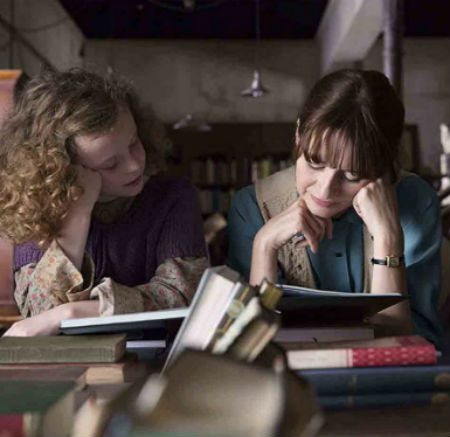
Christine goes from a young girl who hates to read to a young girl who is fiercely loyal and protective of her new employer. Christine may not like books, but she loves Florence and she loves The Old House Bookshop. As time goes by, however, Christine grows to appreciate literature in a way she hadn’t before.
Christine is also a little savvier than Florence in some ways, which makes them a fun pair to watch. I especially enjoyed watching Christine threaten Mr. North if he interfered with Mrs. Green and the shop. It was played very seriously, and I had no doubt that Christine would go after anyone who hurt her friend.
Overall Thoughts
If you love to read, enjoy movies set in the 1950s, small-town life, or like movies about the power of reading, I would recommend checking out The Bookshop. It’s got a determined heroine, some wonderful friendships, and a lot of beautiful books. The characters are fun, whether delightful like Christine and Mr. Brundish or slimy like Milo North. It’s a story about fighting through hard times, about knowing when to fight, and about knowing when it’s time to give up that fight.

The Bookshop is a powerful story about reading and the impact it can make on life, but it is also a story of reaching for one’s dreams and the powerful friendships that can form when we are doing just that. It’s about humans being tougher than we think, and how we all need human contact, as well as our favorite books. I laughed and I cried, and I will certainly be watching The Bookshop again.
Content Note: There is some drinking, smoking, and brief language, but this film is rated PG.
Where to Watch: You can rent or buy on Digital/DVD.
Have you seen The Bookshop yet? Have you read the book? Let me know in the comments!
Photo Credits: Diagonal TV, A Contracorriente Films, Green Films.
OVERALL RATING
“You had me at hello.”
ROMANCE RATING

“In vain have I struggled. It will not do. My
feelings will not be repressed. You must allow me
to tell you how ardently I admire and love you.”

ARE YOU A ROMANCE FAN? FOLLOW THE SILVER PETTICOAT REVIEW:

Bailey grew up in North Idaho where she was encouraged from a young age to love reading, writing and learning; as a result, storytelling is a major part of her life. She believes that no story is ever the same to anyone and that everyone has a story to tell. With that in mind, she someday hopes to write a humorous and inspiring book (or ten, either way). Her books, "A Journey Through Disney," "The Mermaid," and "Dear NSA: One Man's Adventures in Phone-Tapping and Blogging," can be found on Amazon.
More posts by this author.
3 thoughts on “The Bookshop: A New Outstanding Period Drama to Watch”
Just the other day, I watched this film. First I read the book and then I watched the film. There was a couple of changes and things that the film left out, for example, the film had a much more positive ending than the ending in the book! One of the scenes that I’m sorry they left out were where Christine rapped the fingers of Mrs. Violet Gamart!
Thoroughly enjoyed movie! What was book that Florence made Christine promise that she would read? Have been trying to find out for months to no avail!!!
I just loved this movie! Hope I’ll find similiar ones recommended by you here.
Comments are closed.
THE BOOKSHOP: An Adaptation That Flew Too Far From The Sun
The becomers: what’s weirder, aliens or 2020, kraven the hunter: trailer 1, saturday night trailer 1, this is no game: why ready or not still matters, rebel ridge trailer 1, alien: romulus: not quite stellar, his three daughters trailer 1, popcorn frights 2024: lizzie lazarus, strange darling trailer 1, inside out 2: pixar is eating its own tail, greedy people trailer 1, sunny: apple’s promising kyoto-set dark comedy brings mixed feelings.
The Bookshop is a film displaced in time and space. It’s adapted from the book of the same name by Penelope Fitzgerald, which was released in 1978 and set in 1959. Similarly, the book and film are firmly grounded in the Englishness of the Suffolk setting, yet it had German producers and was filmed partly in Spain.
The film tells the story of a recent widow, Florence Green, who decides to open a Bookshop in her Suffolk village of Hardborough. This is much to the chagrin of members of the community, who aid and abet her in various ways. The film had the potential to be a strange showcase of quirky Britishness, which would ground it firmly in the Heritage Film tradition from which it was born. Yet the inconsistent pacing and plot of the film grounds it through the entirety of its run-time, dwarfing it in the shadow of what could have been.
Bad-aptation
The fact that The Bookshop is a literary adaption is being touted as one of its primary selling points – yet it’s also its biggest problem. Adapting from book to screen is a challenge different directors have faced with varying success, and Coixet stumbles here by adapting the book literally, instead of working out a way to translate the spirit of the text.
The novel explores the story of the widow starting a bookshop in a Suffolk village (as does the film), yet it revels in the antagonism of a village in a post-war identity crisis, such as the forces of nature that rot her shop, the neighbours that are reluctant to support her cause and even the larger powers that organise the village. These form a venerable shadow that the shop must bloom under, emphasising the resilience and drive of its proprietor.
Many important plot details likely make a lot more sense to a reader of the book than someone who has only watched the film. It is only revealed rather late in the film that it is actually set in the 1950s (anyone that has been to Suffolk knows the fashion hasn’t changed in about 200 years). This information on setting is a pivotal piece of information in characterising the town – it is still struggling to rebuild and find its identity in a post-war Britain. By neglecting to mention this information, or worse, assuming the viewer possesses the same information as the creator, one of the most interesting characterisations in the film goes forgotten.
The key to a successful adaptation is retaining not the actions and characters of the text but the spirit, soul or themes to it. Whilst some films find success by remaining close to the source material, many must severely cut down, bulk up, or alter the original story and characters in order to keep alive the ideas the original exposed. By keeping the story and characters relatively unaltered from the book, Coixert fails to accurately translate to the screen the true story of the book – an individual and a community exploring what those words mean in the new Britain of the 1950s.
Not a page turner
The lack of a heart line resulting from this troubled adaptation means the film suffers in several aspects – most notably with regard to pacing. The events in the story that relate to the bookshop itself are far and few between, whilst the film is peppered by scenes of characterisation of individuals and the village which have little impact on the story. The uneven balance of these two types of scenes means the film has an uneven pace – at some points the story leaps through important events at speed, at other points far too much time is spent on unimportant or dull side affairs.
A prime example of this is the character of Milo North. Whilst portrayed as a weaselling and unreliable intellectual very successfully by James Lance , the character simply has far too little influence on the plot to justify his numerous appearances. The character is portrayed repeatedly as one with no allegiances or commitments – thematically, therefore, he represents no themes or ideas that the story tries to explore. Scenes with him drag the pacing down to a crawl, and later attempts to characterise him as a morally dubious man fail as audiences already associate him as a tiring supporting character.
Naturally a film set in, and exploring, a small English town has to be slow, simply to represent this setting. Yet the way the script misses beats and dramatically alters pacing means it fails to evoke the sleepy setting it tries to. Instead, the film moves at a consistently inconsistent rate – usually intolerably slow, but at times incomprehensibly fast. Perhaps if the film had a better idea of what story it wanted to tell it could focus on these scenes more, but by trying to adapt the book wholesale the pacing suffers.
A farewell to qualms
The saving grace of The Bookshop , the sole reason to watch it, and the cradle of whatever spirit the film retains, is the characters. Each member of the village is written and acted perfectly, and as such the ecosystem and hierarchy creates a varying atmosphere of awe or fear depending on who is present.
The film is carried by Emily Mortimer as Florence Green, the proprietor of the Bookshop. Her performance evokes equal parts of determination yet doubt; politeness despite adversity; despair creating confidence. Her nuanced performance makes the character empathetic yet never too far into the focus of the story to drown out her place in the village’s ecosystem. It’s undeniable that her acting is the tonic to the film’s poor pacing, riding out its slow crawl with charisma and wit.
The Bookshop: Conclusion
Some parts of The Bookshop make for a truly enjoyable film, like the characters, their interactions and their quirks. If these characters had been written in to a film that made them a part of something bigger than them, or understood exactly what story it was trying to tell, it could have made for a great story.
All films are a sum of their parts, but the weak parts of The Bookshop overshadow the few strong points to make a film that is, frankly, boring.
Which films do manage to be literal adaptations of books?
Does content like this matter to you?
Become a Member and support film journalism. Unlock access to all of Film Inquiry`s great articles. Join a community of like-minded readers who are passionate about cinema - get access to our private members Network, give back to independent filmmakers, and more.
Tom is a recent graduate based in the UK, who writes about films and games, and makes a few of his own. If he's not watching a film, playing a game or writing a script - don't worry! - he's probably just gone to make a cup of tea. He's never far from a screen.
MOVING: Divorce Separation Blues
The Bookshop (2017)
- User Reviews
Awards | FAQ | User Ratings | External Reviews | Metacritic Reviews
- User Ratings
- External Reviews
- Metacritic Reviews
- Full Cast and Crew
- Release Dates
- Official Sites
- Company Credits
- Filming & Production
- Technical Specs
- Plot Summary
- Plot Keywords
- Parents Guide
Did You Know?
- Crazy Credits
- Alternate Versions
- Connections
- Soundtracks
Photo & Video
- Photo Gallery
- Trailers and Videos
Related Items
- External Sites
Related lists from IMDb users

Recently Viewed
Log in or sign up for Rotten Tomatoes
Trouble logging in?
By continuing, you agree to the Privacy Policy and the Terms and Policies , and to receive email from the Fandango Media Brands .
By creating an account, you agree to the Privacy Policy and the Terms and Policies , and to receive email from Rotten Tomatoes and to receive email from the Fandango Media Brands .
By creating an account, you agree to the Privacy Policy and the Terms and Policies , and to receive email from Rotten Tomatoes.
Email not verified
Let's keep in touch.

Sign up for the Rotten Tomatoes newsletter to get weekly updates on:
- Upcoming Movies and TV shows
- Rotten Tomatoes Podcast
- Media News + More
By clicking "Sign Me Up," you are agreeing to receive occasional emails and communications from Fandango Media (Fandango, Vudu, and Rotten Tomatoes) and consenting to Fandango's Privacy Policy and Terms and Policies . Please allow 10 business days for your account to reflect your preferences.
OK, got it!
- About Rotten Tomatoes®
- Login/signup
Movies in theaters
- Opening This Week
- Top Box Office
- Coming Soon to Theaters
- Certified Fresh Movies
Movies at Home
- Fandango at Home
- Prime Video
- Most Popular Streaming Movies
- What to Watch New
Certified fresh picks
- 78% Beetlejuice Beetlejuice Link to Beetlejuice Beetlejuice
- 73% Blink Twice Link to Blink Twice
- 95% Strange Darling Link to Strange Darling
New TV Tonight
- 100% Slow Horses: Season 4
- 97% English Teacher: Season 1
- 54% The Perfect Couple: Season 1
- -- Tell Me Lies: Season 2
- -- Fight Night: The Million Dollar Heist: Season 1
- -- Wise Guy: David Chase and The Sopranos: Season 1
- -- Outlast: Season 2
- -- The Secret Lives of Mormon Wives: Season 1
- -- Selling Sunset: Season 8
- -- Whose Line Is It Anyway?: Season 14
Most Popular TV on RT
- 74% Kaos: Season 1
- 83% The Lord of the Rings: The Rings of Power: Season 2
- 88% Terminator Zero: Season 1
- 100% Dark Winds: Season 2
- 95% Only Murders in the Building: Season 4
- 92% Bad Monkey: Season 1
- Best TV Shows
- Most Popular TV
Certified fresh pick
- 97% English Teacher: Season 1 Link to English Teacher: Season 1
- All-Time Lists
- Binge Guide
- Comics on TV
- Five Favorite Films
- Video Interviews
- Weekend Box Office
- Weekly Ketchup
- What to Watch
Venice Film Festival 2024: Movie Scorecard
Best Movies of 2024: Best New Movies to Watch Now
What to Watch: In Theaters and On Streaming
Awards Tour
Joker: Folie à Deux First Reviews: Joaquin Phoenix Shines Again in ‘Deranged, Exciting, and Deeply Unsettling’ Sequel
Renewed and Cancelled TV Shows 2024
- Trending on RT
- Beetlejuice Beetlejuice
- Top 10 Box Office
- Venice Film Festival
- Popular Series on Netflix
The Bookshop Reviews
No All Critics reviews for The Bookshop.
FILM-MOMATIC REVIEWS
*comes with reviews, personal thoughts on film and extra sauce all wrapped up in a sesame seed bun., movie review – the bookshop.

EXPECTATIONS: An understated, emotionally stirring piece of work.
REVIEW: Isabel Coixet has always been a talented filmmaker, making understated drama films dealing with issues like existentialism and inner turmoil to great aplomb. Although there have been some highs in her filmography like My Life Without Me and The Secret Life of Words (both starring the talented actress/director Sarah Polley ), her last few films have signaled a steady decline in quality.
Since 2009’s beautiful yet empty Maps of the Sounds of Tokyo , her films have ranged from emotionally resonant to thematically lightweight. Now, we have her latest film, The Bookshop , which is adapted from an acclaimed novel of the same name by Penelope Fitzgerald . With its talented cast and strong source material, will it get Coixet out of her slump?

Emily Mortimer stars as Florence Green, a widow who has just decided to put her turmoils behind her and risk everything to open up a bookshop; the first shop of its type in the sleepy seaside town of Hardborough, England.
But this seemingly innocent decision causes quite a stir in the town, which brings her fierce enemies: she invites the hostility of the town’s less prosperous shopkeepers and also crosses Mrs. Gamart ( Patricia Clarkson ), Harborough’s alpha who is a wannabe prominent of the local arts scene.

Is The Bookshop a stellar film that gets Coixet out of her slump? Well…as with all of Coixet’s films, the cinematography, courtesy of regular cinematographer Jean-Claude Larrieu , is striking to look at. The musical score by Alfonso de Vilallonga is quite effective when utilized at the right moments.
And the last but not least, the standout performance is from Honor Kneafsey . She struggles a little bit in the first act but manages to find the perfect balance in conveying maturity and naivety, as Christine. With her performance here and her work in the murder mystery film Crooked House , her career looks like it could go on to greener pastures.

Which makes it all the more disappointing that The Bookshop lands with a loud thud. Despite the fact that the film is adapted from acclaimed source material, the characters are as thin as the pages they’re written on. Florence wants to start a bookshop because she likes books and the film never develops the character nor the motivation beyond that. And the same goes for Mrs. Gamart, who wants to use the foundation of the bookshop to build an art center. Mustache-twirling ensues.
The acting would’ve given the characters and the film much-needed vitality but they’re all quite lifeless. Mortimer is okay as Florence, but her performance confuses inner emoting with inactivity. Nighy gets in a few chortles but he looks like he’s reprising his role as a zombie in Shaun of the Dead . His performance doesn’t come off as subtle, it comes off as sedated. Clarkson, who’s shown acerbity like a professional in many films, most recently in Sally Potter ’s The Party , is unfortunately quite de-fanged here.

It certainly doesn’t help the actors that the storytelling is all over the place, led by (or led off?) by Coixet’s loose direction, which just goes off into montages of misery without any character investment. To make up for the lack of convincing conflict and thin characterization, narration (read by Julie Christie ) is added and it is patronizing, illogical and snore-inducingly terrible.
In one scene, Bill Nighy ’s character, Brundish, tears the portrait pages from book covers and tosses them on a fire, while the narration says “There was nothing that bothered him more than the portraits that appeared in certain editions.” In another scene, we see Florence being angry at the bank teller, the narration actually states that “She is angry”. It’s bad enough that the audience are not only disengaged, but they’re being treated like brain-damaged morons.

And when the film isn’t being boring, it becomes increasingly creepy, with the inclusion of a slight romance between Florence and Brundish, as the two bond over the love of books. The age difference is just terrifying and speaking of morbidity, the ending of the film is so predictable, that a certain plot device shown early in the film, completely ruins it. The foreshadowing is just insultingly solid-black.
Overall, The Bookshop is a predictable bore that wastes many of its talents on terrible storytelling and emotionally stunted direction from Coixet. Give a hoot, read a book. But don’t watch this movie. See The Guernsey Literary and the Potato Peel Pie Society instead. Now that’s a film that at least conveys the love of books in a more entertaining and compelling fashion.
Quickie Review
Honor Kneafsey’s performance
Well-shot and in some parts, well-scored
Inconsistent performances
Patronizing narration
Underdeveloped script
Boring storytelling
Creepy attempt at romance
SCORE: 3/10

Cast: Emily Mortimer, Bill Nighy, Patricia Clarkson, Honor Kneafsey, James Lance, Reg Wilson, Michael Fitzgerald, Hunter Tremayne, Frances Barber, Nigel O’Neill, Jorge Suquet, Harvey Bennett, Charlotte Vega, Julie Christie (narrator) Director: Isabel Coixet Screenwriters: Isabel Coixet, based on the novel of the same name by Penelope Fitzgerald
Share this:
That’s disappointing, this seemed like something I would at first.
Like Liked by 1 person
It’s a shame. I wanted to like this. I thought it would be like THE GUERNSEY LITERARY AND THE POTATO PEEL PIE SOCIETY.
But nope. Just the most boring film of 2018. =(
Leave a comment Cancel reply

- Already have a WordPress.com account? Log in now.
- Subscribe Subscribed
- Copy shortlink
- Report this content
- View post in Reader
- Manage subscriptions
- Collapse this bar
By Don Morton
The Bookshop
Subtly subversive
March 8, 2019
In a small East Anglian village in 1959, a freethinking widow (Emily Mortimer) decides to open a bookshop. There is considerable and highly stuffy opposition to this (personified by local grand dame Patricia Clarkson), but on her side is the town’s reclusive bibliophile (a scene-stealing Bill Nighy). Based on the best-selling novel by Penelope Fitzgerald and adapted by Isabel Coixet ( The Secret Life of Words, My Life Without Me ), this is an ever-so-slightly understated and subversive film for lovers of great acting; the kind where there’s a lot going on despite nearly nothing happening. (113 min)
' . esc_html($author->display_name) . '
You may also like.

Park Hyatt Tokyo Christmas Cakes

Antcicada’s Cricket Ramen in Tokyo

CENSU TOKYO

October Anime and Fashion Pop-Ups 2023
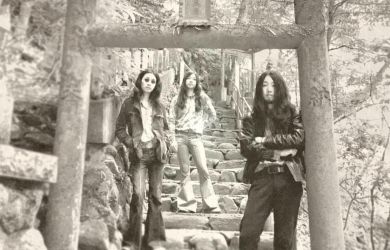
That’s life

What’s Happening in Tokyo this May?

The democratic designs of Issey Miyake
Flickering Myth
Geek Culture | Movies, TV, Comic Books & Video Games
Movie Review – The Bookshop (2017)
June 26, 2018 by Freda Cooper
The Bookshop , 2017.
Directed by Isabel Coixet. Starring Emily Mortimer, Bill Nighy, Patricia Clarkson, Honor Kneafsey, and James Lance.

Florence Green decides to open a bookshop in the small coastal town of Hardborough. But she finds herself up against powerful opposition in wealthy Mrs Gamert, who has her own ideas on how the shop should be used. And will stop at nothing to get her own way.

Hands up who’s had that feeling of being an outsider, not fitting in with the group or crowd who seem to make things happen. At the very least, it’s awkward, but it’s often more unpleasant and painful than that. It’s exactly what happens to the widowed Florence Green (Emily Mortimer) in the small English seaside town of Hardborough in 1959, when she decides to set up her own business, a bookshop. And swiftly finds herself confronted by small town attitudes, not so much because of what she’s selling but because the nearest thing the town has to a lady of the manor, the wealthy Mrs Gamert (Patricia Clarkson), has designs on the same property. She wants to establish an arts centre and no little bookshop is going to stop her.
At first sight, this looks like a British Chocolat , but with books. The townsfolk are introduced to adventurous titles such Lolita and Fahrenheit 451 but, to the film’s credit, it eschews the predictable moral outrage route and goes for something more subtle, with good old fashioned snobbery as its target. Mrs Gamert concentrates on political means to oust her rival, her measured, soft tones being nothing more than a front for somebody who will have their own way at any cost. Florence, however, does have an unlikely ally, Mr Brunish (Bill Nighy), a recluse living alone in a mansion which recalls the spirit of Satis House, the home of Great Expectations ‘ Miss Havisham. Through Florence, he discovers the works of Ray Bradbury and even goes head to head with Mrs G to plead her case.

So a film, appropriately enough, inspired by literature. But let’s pause for a moment and play a game. You know the one. How long does it take you to work out the ending? If you’re watching something with Paul Haggis’s stamp on it, you know that somewhere along the line he’ll give you an industrial sized pointer. Million Dollar Baby , we’re looking at you. And it ruins things. To be fair, he usually waits to around about the halfway point, but not so The Bookshop . The giveaway comes in the first half hour so you spend the rest of the film waiting to see if you’re right. And there’s precious little satisfaction in discovering you are.
Which means the film is on a hiding to nothing. Even Bill Nighy – who steals every scene he’s in (and there’s not enough of them) – can’t quite save it. Whenever the storyline starts to sag – which it does regularly – and you start wishing he was on the screen, back he comes with his gangly walk, ready to deliver another pearl of wisdom with a slice of irony on the side. But this time, he’s not playing it for laughs: he gives Brunish a genuine pathos and it’s a beautifully understated piece of acting. Mortimer is spirited and sensitive as Florence, and Clarkson elevates her character into something more than just a boo-hiss villain, although the same can’t be said for her English accent. The fact that the three of them are so good highlights the shortcomings of James Lance as the local cad who hams it up so much that it’s like watching a young Frankie Howerd, but without the obvious toupee.

You can’t judge a book by its cover and you can’t judge The Bookshop that way either. Adapting a best seller and giving it a classy line-up all point towards something highly watchable but, when the pace is this slow, the tone this flat and the ending so horribly predictable, that empty feeling of disappointment is unavoidable. At best, you’ll be underwhelmed.
Flickering Myth Rating – Film: ★ ★ / Movie: ★ ★
Freda Cooper. Follow me on Twitter .
JOIN OUR FREE PATREON

FMTV – Watch Our Latest Video Here
YOU MIGHT ALSO LIKE:

10 Essential Films From 1994

The Essential Horror-Comedies of the 21st Century

The Essential Films of John Woo

Who is the Best Final Girl in Horror?

The Best 90s and 00s Horror Movies That Rotten Tomatoes Hates!

X-Men: Days of Future Past at 10: An ambitious timey-wimey superhero flick

13 Obscure Horror Movies You Need to See

In a Violent Nature and Other Slasher Movies That Subvert the Genre

Ten Essential Films of the 1940s

The Most Incredibly Annoying Movie Characters
- Comic Books
- Video Games
- Toys & Collectibles
- Articles and Opinions
- Flickering Myth Films
- About Flickering Myth
- Write for Flickering Myth
- Advertise on Flickering Myth
- Terms of Use
- Privacy Policy

Home » The Bookshop Movie Review: This adaptation never rises above expectation
The Bookshop Movie Review: This adaptation never rises above expectation
If you were to set out to make a parody of mid-century set English chamber pieces, the result would most likely bear a striking resemblance to Isabel Coixet’s ( Things I Never Told You , Learning to Drive ) The Bookshop . It’s got all the trappings of quintessential Britishness, from hand-crocheted tea cozies and pensive walks along the coast to expertly tailored 1950s garb and a plot founded on a central argument over what truly is the superior art form. An adaptation of Penelope Fitzgerald’s award-winning novel of the same name, The Bookshop scratches a very specific itch for a pleasant period drama, even if it never rises above the call of duty to do so.
It’s 1959, and free-spirited, tenacious widow Florence Green (a reliably divine Emily Mortimer) decides that the best way to overcome the loss of her husband is to move to the obstinately conservative seaside town of Hardborough, England and open a modest bookshop. As inoffensive as it may seem, her decision proves to be a deeply controversial one, as she finds herself an enemy in the town busybody Mrs. Gamart (Patricia Clarkson), who wants to convert Florence’s new home into a community arts center. She soon begins a correspondence with town recluse Edmund Brundish (Bill Nighy) when the pair bond over the trauma of loss and a shared affinity for literature.
Ultimately too slight for its own good, The Bookshop fails to establish much in the way of genuine stakes. Threads of conflict peter out before they are given the opportunity to evolve into anything more than minor inconvenience. It’s as if there are sizable chunks missing from the screenplay, in which character motivations are explored and their pursuits are given credence. Our central focus rests on the shoulders of Florence, and while Emily Mortimer’s performance elevates her every exchange, we ultimately know very little about her. Florence’s chief character trait appears to be that she simply likes books. It doesn’t help that the film develops an overreliance on voice-over narration (provided by the incomparable Julie Christie), as the script seems terrified at the prospect of getting its point across without spoon-feeding its audience.
That being said, there is sort of comfort to be found in the film’s simplicity and familiarity. Viewers are treated to a repertoire of talented performers meshing well with the material, even if they never stretch beyond base expectations. The Bookshop succeeds in crafting a safe, cozy bubble of keen period detail, as it flaunts its vintage tweeds and umbrellas and antique lampshades. If the film is remembered at all, it will be for its atmosphere, rather than for its characters or plot development, as it is essentially a feature length postcard depicting 1950s small-town life and English seaside vistas.
While director Isabel Coixet is not without her glimmers of inventiveness (a sequence that finds Bill Nighy speaking his confession letter into the camera as if delivering it to an audience is particularly fanciful), The Bookshop does little more than point its viewer toward more imaginative films. It is based around such a trite ideology that isn’t novel enough to be affecting, spending far too much of its runtime pitching obvious platitudes advocating for the importance of self-authority and the forgotten art of the written word. Sweet and meager, perhaps the film would make for pleasant addition to a rainy afternoon, but it fundamentally feels like a sentimental series of missed opportunities. Coixet is a filmmaker who has constructed thoughtful, textured tales in the past, but here, she doesn’t seem to have much of anything to say.
Advertisement
Brian Thompson
Brian Thompson‘s adoration (and borderline obsession) for all things pop culture has culminated in his movie reviews blog, southernfilmcritic.wordpress.com. His written ramblings on the world of entertainment have been featured around the web, on such sites as Chicago Scene and Taste of Cinema. Brian is also the founder and cohost of the Drinking at the Movies podcast on the Now Playing Network.
Papillon Movie Review: Bad accents and boring dialogue traps true story
Searching movie review: an interconnected thriller on the interweb.

8 TV-inspired Halloween costumes to wear this spooky season

‘Stargirl’ 3×08 review: “Frenemies – Chapter Eight: Infinity Inc. Part Two” explores The Shade’s regrets in the Shadowlands

“The Car” review: The most refined album Arctic Monkeys have ever released.

Album Review: Maajo – ‘Water of Life’

‘Pantheon’ series premiere review: The future is bright in the animated science fiction drama

Find Family Movies, Movie Ratings and Movie Reviews
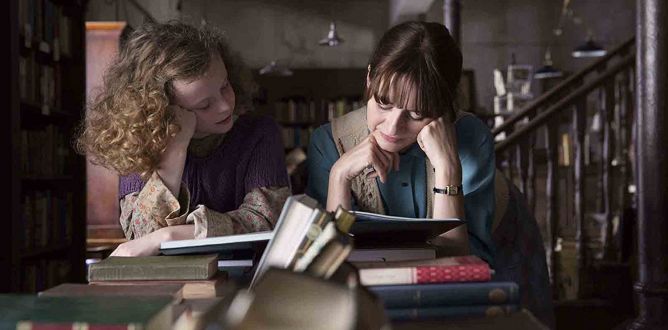
The Bookshop Parent Guide
Despite an excellent cast and a beautiful setting, this film falls short of expectations..
Florence Green (Emily Mortimer) opens a bookshop in an insular British town in 1959. Brimming with excitement about new books and new ideas, Florence meets with resistance when she sets up shop in a heritage building.
Release date August 24, 2018
Run Time: 114 minutes
Official Movie Site
Get Content Details
The guide to our grades, parent movie review by kirsten hawkes.
Bookshops and libraries are magical spaces for bookworms. They are places to spend quiet afternoons, slowly browsing the shelves, searching out compelling new reads. Although that unhurried tempo is part of the charm of those experiences, The Bookshop , in its big screen debut, keeps the tempo but loses the charm.
This tale opens hopefully in the small East Anglian town of Harborough, circa 1959. Florence Green (Emily Mortimer), a middle-aged widow, has decided to fulfill her dream and start her own bookshop. She buys a rundown building, appropriately named the Old House, and opens for business. Unfortunately for Florence, the local grand dame, Violet Gamart (Patricia Clarkson), has determined that the Old House would be the perfect site for an arts center. Violet is used to getting what she wants and is not going to let anything as minor as legal title stand in her way.
It is disappointing that this conflict fails to generate much excitement. And that is the root of this film’s problem. The Bookshop should be better than it is. Adapted from Penelope Fitzgerald’s best-selling novel , it has an excellent cast and enjoys a beautiful setting . However, the directing is clumsy and heavy-handed, the pacing is slow and uneven, and the movie is a good twenty minutes too long. The secondary characters are almost all wooden and unconvincing. Even heartfelt performances by Emily Mortimer and Bill Nighy can’t breathe life into this dusty story– although the wind certainly could. The East Anglian coast experiences dramatic weather and there are so many shots of the wind blowing across the scenery that it is almost a character in the film.
On the bright side, this movie has very minor content issues. There are a handful of mild profanities and some smoking and social drinking. This is not a movie for children, who would not be interested in the plot. But there are no reasons why teens or adults shouldn’t watch The Bookshop. Sadly, there just aren’t any reasons why they would want to.
About author
Kirsten hawkes, watch the trailer for the bookshop.
The Bookshop Rating & Content Info
Why is The Bookshop rated PG? The Bookshop is rated PG by the MPAA For some thematic elements, language, and brief smoking
Page last updated April 18, 2020
The Bookshop Parents' Guide
Florence’s life is driven by her love of reading. Have you ever had a book that changed your perspective on something? If you could give one book to everyone around you, which one would you choose?
If you love books and want to share with those who can’t afford their own, you can donate them through many different charities.
Florence says, “There is a certain responsibility about trying to run a bookshop.” She struggles with whether or not she should stock a controversial erotic novel. Do you think she makes the right decision? Do you think bookstores and libraries have a duty to protect people from distasteful reading material or do you think they have a responsibility to provide as many choices as possible for their readers?
Should libraries ban potentially offensive children’s books?
Why do books get banned by bookstores and libraries?
News About "The Bookshop"
This movie is based on a novel by Penelope Fitzgerald .
The most recent home video release of The Bookshop movie is August 24, 2018. Here are some details…
Related home video titles:.
Joker: Folie à Deux Review: The Year's Boldest Comic Book Movie Is A Compelling Musical Deconstruction
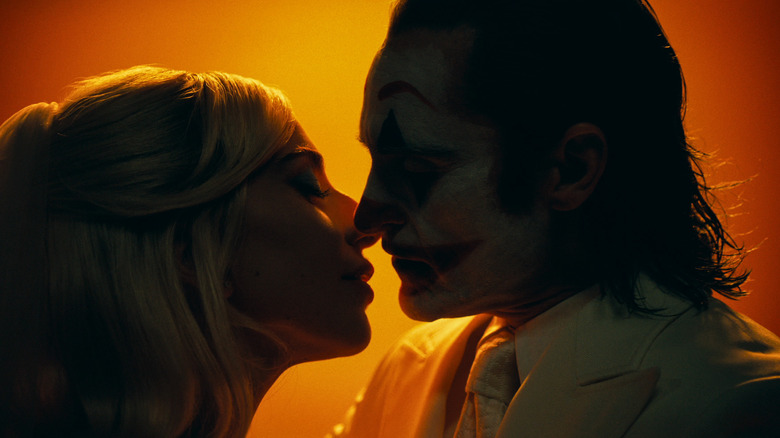
Why is the Joker so beloved? It's a question worth pondering, primarily because the character's worship seems baffling on paper. Sure, it makes sense why he's popular; he's one of the all-time great villains, and a hero like Batman is only as good as their villain. Yet the Joker's status as an icon has grown beyond his function as a foil to the Dark Knight. The hysteria surrounding the late Heath Ledger's portrayal of the character in "The Dark Knight" was totally explicable given Ledger's James Dean-esque tragic mystique, yet Joker mania has only increased since that film. The character is on the same level as other fictional villains like Walter White, Michael Corleone, and Freddy Krueger. In terms of morality, none of these characters should be revered, yet they are.
There is an easy answer to this question, of course: such despicable villains have always drawn the attention and fascination of us so-called good people. From Richard III to Hannibal Lecter, these characters provide a vessel with which to explore and even indulge in our dark sides, the things we mustn't think about, let alone do or say. Yet as a result of this, these characters are elevated to icon status, becoming more of a symbol than something more definitive. Joker may be the perfect example of an image eclipsing the character; his origin has purposely never been rigidly defined, and even his actual origins are vague, with creators Bill Finger, Bob Kane, and Jerry Robinson all having different accounts of how he first appeared in the Batman comic books. There is no "definitive" Joker, and at this point, there may never be.
It's these themes and questions involving the character that director/co-writer Todd Phillips' new film "Joker: Folie à Deux," attempts to tackle head-on. Following 2019's "Joker," which saw Joaquin Phoenix delve into the grittiest and most grounded interpretation of the character thus far, "Folie à Deux" has Phoenix, Phillips, co-writer Scott Silver and co-star Lady Gaga seeing how much further they can deconstruct and stretch the character and his world into psychological realism without losing his genre roots. Their solution — to turn the film into a musical — is one that makes this sequel the most compelling comic book movie of the year.
Joker: Folie à Deux is an extension of the first film with a musical twist
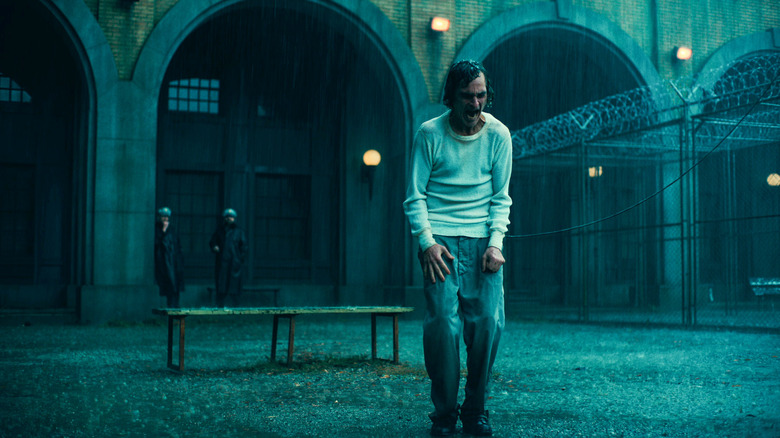
After a table-setting cartoon (by Sylvain "The Triplets of Belleville" Chomet) entitled "Me and My Shadow" which also doubles as a mini-recap of the first "Joker," "Folie à Deux" begins with Arthur Fleck (Phoenix) incarcerated in Gotham City's Arkham State Hospital. Although one could interpret "Joker" as being wholly made up of Fleck's delusions, "Folie à Deux" assumes that everything in that film occurred as shown, and that following its conclusion, the myth and influence of the Joker has only grown. Meanwhile, Arthur himself has seemingly lost his inner clown; he no longer smiles, let alone laughs, his daily medication keeping him docile while the facility's gang of guards (led by Brendan Gleeson, sporting a helluva shark's smile) taunt him by promising to trade a joke for a cigarette. It's only when Arthur spots Lee (Lady Gaga), a patient at the minimum security ward, that he begins to come back to life. The two bond when enrolled in the same music therapy class, the instructor of which encourages the patients to just start singing whenever their feelings move them to do so.
With that, Phillips gives the movie license to become an integrated musical of sorts. To be accurate, most of the musical numbers performed in "Folie à Deux" are fantasy sequences, taking the waking delusions Arthur experienced in the first film and expanding them into full-blown daydream alternate realities. This isn't quite Rob Marshall's "Chicago," however, thanks to the inclusion of Lee. She's a Joker stan, to use the parlance of today, and as per the "madness shared by two" subtitle of the movie, she and Arthur seem to share the same delusions from time to time, leading to some musical performances that are happening in the "real" world. Whether other characters can hear their performances or not, all of the singing and dancing in the movie is performed by Arthur and Lee, an indication of the special bond the two share. (Also special: the way composer Hildur Guðnadóttir weaves her original score in between and in conjunction with the handful of songbook standards performed in the film.)
So, while Joker and Harleen "Lee" Quinzel are starring in their very own musical, the rest of "Folie à Deux" concerns Arthur being put on trial for the murders he committed during the first movie. Sure enough, as per a number of high-profile criminal trials over the decades, the proceedings become a media frenzy as cocky young prosecutor Harvey Dent (Harry Lawtey) attempts to portray Arthur as a competent killer while defense attorney Maryanne Stewart (Catherine Keener) tries to convince the world that Arthur and the Joker are two distinct personalities. In this way, "Folie à Deux" feels like an extension of the first "Joker," even a bit of an extended epilogue, rather than solely its own movie. While the lack of shenanigans happening in Gotham (or anything outside the asylum and courthouse, really) could frustrate some, the film does honor its "part two" status, even returning to some characters and events from the first movie that helps flesh them out better.
A great character piece that unfortunately stifles its satire
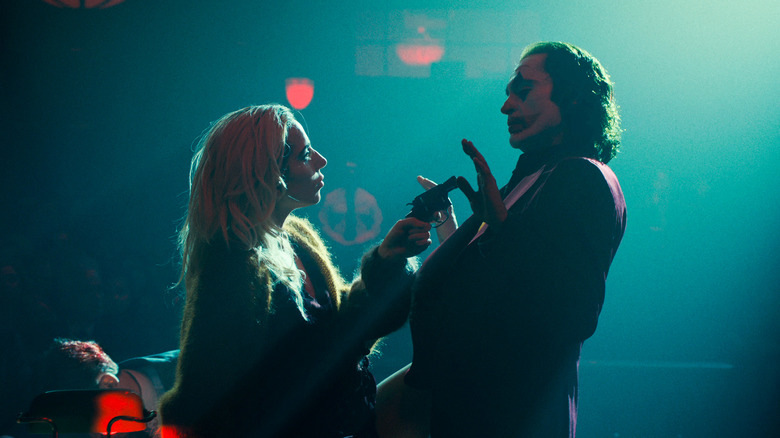
Even more than its status as a movie musical, the relatively insular nature of "Folie à Deux" is likely to be the film's hardest pill to swallow. After all, one of the pleasures of the first "Joker" was the way it presented a Gotham City heavily reminiscent of New York City circa 1981; despite all the cartoon and musical number flourishes seen in the film, "Folie à Deux" is a far more muted experience visually. That insularity does properly support Phillips and company's goal of keeping "Joker" a character study. To their credit (and like its predecessor), this is not a comic book movie that has a different flavor only to end up at the same third act "get-to-the-MacGuffin" explosions and punches climax. More than every other comic book adaptation, "Folie à Deux" feels blissfully untethered from the demands of the genre and any attendant franchises or cinematic universes. There is a bit of a drawback to that, however, and for this film it's the complete and total lack of the Bruce Wayne/Batman character. In the first "Joker," this aspect was handled rather brilliantly, presenting Wayne and his family as corrupt antagonists to poor, disparaged Arthur, flipping the script on the hero/villain dynamic as makes psychological sense when the perspectives are reversed.
Phillips and Phoenix are trying a similar trick here in the sequel, albeit one that's not as resonant: instead of Joker versus Batman, and Arthur versus Gotham (aka "society"), this film presents Arthur versus Joker, or more specifically, Arthur versus the Joker's fandom. A worthy idea, to be sure, yet one that the movie doesn't quite commit to hard enough. This may be a byproduct of the way that Joker means different things to different people in the real world; the film is trying to explore and reconcile all these facets, keeping Arthur sympathetic while acknowledging and not apologizing for his crimes. Like the first "Joker," Arthur is very much at the center of the story, which keeps it of a piece with its predecessor. Yet sticking so closely to the character's inner struggle doesn't fully allow for the movie's satire of the media and the fascination pop culture has with true crime and scandal to soar. Perhaps Phillips and company were worried they might get too close to something like "Natural Born Killers" or even "The People Vs. Larry Flynt," and ironically, it's the brief flashes of films like that in this material which leaves it feeling somewhat incomplete.
Lady Gaga's Lee finally justifies the Joker and Harley relationship
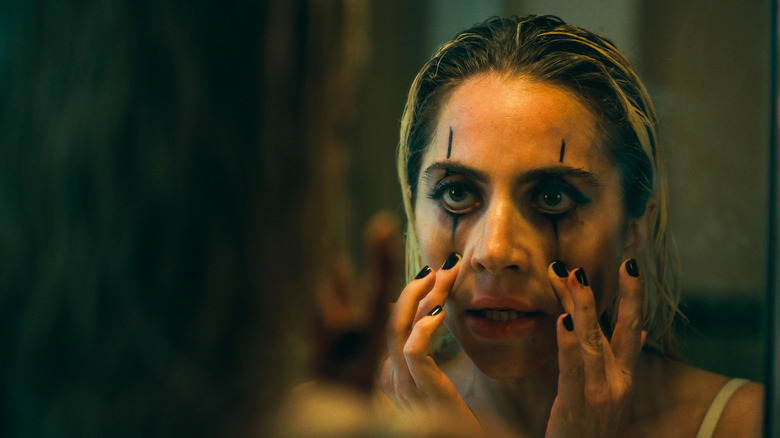
Although the movie's satire is a little too toothless, its exploration of what happens when a criminal (or any public figure) gains an image that becomes so enormous the person at its center no longer matters is handled very well. Phoenix plays his part in this as compellingly as he portrayed Arthur in the first movie; his work here feels like he shot it immediately after wrapping "Joker," so in-step is he with the character. The revelation of the movie is Gaga as Lee: on a technical level, it's so impressive to see how the actress and musician modulates her talent and abilities. To better suit the film's aesthetic (and match Phoenix's method of performing his songs in character), Gaga lets Lee have a breathy, pitchy style to her singing, only opening up the throttle during some of the fantasy musical numbers. It's a performance that recalls Ellen Greene's Audrey in "Little Shop of Horrors," demonstrating Gaga's huge range.
What's even better is how she's able to tap into the psychological realism of Harleen in a similar fashion to Phoenix's take on Arthur. I admit that I've never fully bought into the character of Harley Quinn when it comes to her relationship with Joker, as the toxicity and audacity of their story tends to make me roll my eyes (the nadir of this is their portrayal in 2016's "Suicide Squad" ). Here, however, Harley comes to life in a way she never has before, her madness and obsession parallel yet distinct from Joker's. It makes the Arthur and Lee relationship consistently engaging and fascinating throughout the movie, taking it beyond the trite "she was his queen" emo edgelord nonsense and into something much deeper and more complex.
"Folie à Deux" isn't the last word on Harley or the Joker, because at this point, nothing can be. Yet the film may end up being the most fascinating take on the characters, if only because they've been given the space and respect to be explored, regardless of their usual place in their genre and lore. That a movie can appeal equally to people both familiar with these characters as well as those totally unfamiliar with them is the ultimate achievement of any adaptation, really, one that more franchise and IP films should be striving for these days. "Joker: Folie à Deux" may not be able to encapsulate the totality of the character, and may attempt to bite off more than it can chew. Yet it feels remarkably honest and true to itself, demonstrating again that taking such a popular character seriously is nothing to laugh at.
/Film Rating: 8 out of 10
"Joker: Folie à Deux" opens in theaters on October 4, 2024.
Nicole Kidman’s Netflix Mystery ‘The Perfect Couple’ Is Profoundly Unserious in All the Best Ways: TV Review
By Aramide Tinubu
Aramide Tinubu
- Jeff Goldblum’s ‘Kaos’ Is a Meandering Mythological Bore: TV Review 1 week ago
- Kamala Harris’ Speech Was Powerful and Heartfelt, but Trump’s Legacy Has Stilted My Joy 2 weeks ago
- Emayatzy Corinealdi and Morris Chestnut Lead a Soapy and Intense ‘Reasonable Doubt’ Season 2: TV Review 2 weeks ago

Related Stories

Disney’s Theme Parks Problem Is a Monster of Its Own Making
Popular on variety.
Amela’s fiancé, Benji, is thoughtful and kind, but his affluent family is different. Benji’s older brother, Tom (Jack Reynor), is an blowhard bro barely kept in line by his conniving wife, Abby (Dakota Fanning). Meanwhile, Will (Sam Nivola), the youngest Winbury, is emotionally disturbed and haunted by the past. Windbury patriarch Tag’s ( Liev Schreiber ) sole passions appear to be rowing, golfing and smoking weed. And matriarch Greer ( Nicole Kidman ), an acclaimed novelist, rules her husband and sons with a seething calculation, and stands at the top of this house of cards.
Kidman, Schreiber and Fanning, in particular, effectively portray profoundly broken people who are concerned only with appearances and maintaining their lifestyles. The show’s pacing and timeline also keep viewers engaged. As wedding guests are called into the police station for questioning, the audience learns about their inner thoughts and preoccupations. However, the series’ tone is almost comical, because the bigger picture becomes glaringly apparent as each puzzle piece clicks together. From the soap-opera-esque dialogue to a cheesy dance sequence involving the entire cast that opens each episode, there is never a point where viewers can take “The Perfect Couple” seriously. But this is why it’s so enjoyable.
Though Amelia adores Benji, it’s clear she’s deeply uncomfortable under the Winbury roof. Moreover, while everyone else seems terrified of Greer, Amelia is not interested in putting on airs. She pushes back against certain etiquette and desperately searches for answers to all the questions that have arisen for her. In Episode 3, “The Perfect Family,” a dinner descends into a reality TV-like affair when the bride-to-be boldly asks Greer about her use of NDAs and the cryptic disappearance of a family friend. What’s uncovered are answers no one at the table is ready to confront. A similar scene in the finale, “That Feels Better,” leads to more jaw-dropping and fantastical revelations.
While it’s billed as a gripping investigation, “The Perfect Couple” examines appearances and what people are willing to do to uphold them. Despite the nonsensical narrative and its lack of actual depth, the series has enough magnetic star power and conspicuous intrigue to make it a delightful and highly watchable experience.
“The Perfect Couple” premieres on Netflix Sept. 5.
More from Variety

Russell Wilson Signs With WME (EXCLUSIVE)

High-Resolution 8K Has Its Places, but TV Might Not Be One of Them

Rebel Wilson Film ‘The Deb’ Screens at WME Amid Bare-Knuckled Battle Between ‘Pitch Perfect’ Actor and the Producers (EXCLUSIVE)

4D Movie Tech Lacks Consumer Awareness: Survey
More from our brands, weezer’s blue album tour turns their hits into glorious sci-fi camp.

Robb Recommends: The Pint-Sized Electric Shaver That Punches Above Its Weight

Turf Wars: NFL’s Playing Surface Debate Crosses Medical, Legal Lines

The Best Loofahs and Body Scrubbers, According to Dermatologists

Sunday Night Football: How to Watch the Chiefs/Ravens Game Live Online

Advertisement
Supported by
‘Rebel Ridge’ Review: Their Corruption, His Destruction
This crime drama from Jeremy Saulnier stars Aaron Pierre as a man whose run-in with small-town police officers uncovers uncomfortable secrets.
- Share full article

By Amy Nicholson
A veteran arrives in a rural town to find his friend. He comes in peace — but the police demand submission. “Rebel Ridge,” written and directed by Jeremy Saulnier, wears its “ First Blood ” inspirations as boldly as John Rambo sported a patch of the American flag. That franchise distended into Afghanistan, where Sylvester Stallone machine-gunned the Red Army during the long Soviet war there. But Saulnier ( “Blue Ruin,” “Green Room” ), a specialist in thrillers set in the margins of society, keeps this efficient tale of ethical outrage as simple as a punch to the throat — or rather, given its stark cinematography, like a shot of someone patiently walking up to a bully and then punching them in the throat.
The law remains more or less the same as it was 40 years ago, when it didn’t strain the audience’s credulity to imagine conservative cops loathing a hippie drifter. These Southern officers are nearly all indistinguishable, fatuous men with cropped goatees and dull stares, headed up by a swaggering police chief (Don Johnson) who drawls that he wouldn’t cut a guy a break for “eee-ternal life and a catfish sandwich.”
But today, and with pointed reason, Saulnier has cast Aaron Pierre, a Black actor, as Terry, a former Marine who is simply pedaling a bicycle when he gets stopped and frisked. The officers, played by Emory Cohen and David Denman, confiscate the cash Terry’s carrying to bail out his cousin (C.J. LeBlanc) who’s been arrested on a weed possession charge, plus a few extra dollars Terry intended to use to buy a new truck. Here, as in the real world, “civil forfeiture,” the seizure of money or property from people who have not been charged with or convicted of a crime, is extra income for police departments. (Terry’s situation, not an uncommon one, mirrors an incident reported in The New York Times in 2021 .)
The local judge (James Cromwell) won’t help, and the court’s bail collector (Steve Zissis) is unswayed by Terry’s argument that the money to free his cousin is already in the building. (“This is surreal!” Terry sputters.) No one mentions race, not for a long while, and no one has to. The tension is in the cops’ confidence that they can do anything they want to Terry, in how doggedly he remains civil, long past the point where we want him to lose his cool. In one scene, he even appears to bring them doughnuts.
Terry will snap, but the dominant mood isn’t revenge — it’s futility. The recent push for increased oversight of law enforcement is folded into the story, yet the fixes haven’t helped. One plot point centers on when a cruiser’s dashboard camera starts recording, and there’s a running gag about the linguistic shift from “nonlethal” to “less-lethal” weapons that hammers home the idea that the damage hasn’t changed, only the veneer. But the script resorts to a go-there, get-the-thing structure that sends Terry and his only supporter, a scrappy low-level court employee named Summer (AnnaSophia Robb), skulking around to obtain taped evidence of police abuse. Given the unshakable mood of cynicism, it’s hard to get very invested in their quest — especially when we’re already aware of so many similar videos that haven’t changed a thing.
We are having trouble retrieving the article content.
Please enable JavaScript in your browser settings.
Thank you for your patience while we verify access. If you are in Reader mode please exit and log into your Times account, or subscribe for all of The Times.
Thank you for your patience while we verify access.
Already a subscriber? Log in .
Want all of The Times? Subscribe .
- Entertainment
- Pedro Almodóvar’s <i>The Room Next Door</i> Finds Joy Even as It Stares Down Death
Pedro Almodóvar’s The Room Next Door Finds Joy Even as It Stares Down Death

F or those who have been following his career from the start , the idea of Pedro Almodóvar’s growing older—and increasingly using his films to reflect on illness and death, or at least just the inevitable slowdown that comes for most of us—is a bitter pill. None of us relishes thinking about our own mortality. But sometimes it feels worse to think about losing an artist we love, especially one as vital and ageless as Almodóvar. One of his finest, most moving works , 2019’s Pain and Glory , reckoned with the nuisances of aging, as well as the trauma of being an artist in crisis. But the director’s first English-language movie, The Room Next Door —playing in competition here at the Venice Film Festival —delves even further into the murky waters of our feelings about death. Julianne Moore and Tilda Swinton star as Ingrid and Martha, old friends who bonded in New York in the 1980s but who have been out of touch for a long time. They reconnect when Ingrid learns that Martha is being treated for cancer, and their rekindled friendship veers into complicated territory.
The Room Next Door is an adaptation, written by Almodóvar himself, of Sigrid Nunez’s 2020 novel What Are You Going Through, and at first the movie’s tone feels a little strange, untethered to any easily identifiable genre. It’s a story about friendship, clearly, but also about a woman facing a solitary and difficult choice. The dialogue sometimes feels flat and wooden. At one point Martha reminds Ingrid of the lover they’d once shared, though technically, he’d drifted toward Ingrid after he and Martha had broken up. “He was a passionate and enthusiastic lover, and I hope he was for you too,” Martha says, and though she means it, the line hits with a thud. And even if Almodóvar goes for a laugh here or there, overall the tone of The Room Next Door is a bit somber—almost like a black comedy, but not quite.
Read more: The Best New Movies of August 2024
And yet, by the end, something almost mystical has happened: the movie’s final moments usher in a kind of twilight, a state of grace that you don't see coming. Ingrid, a successful writer, first hears of Martha’s illness at a signing event for her most recent book. Though she hasn’t seen Martha in years, she dutifully visits her at the hospital where she’s being treated. They catch up quickly: Martha, who worked for years as a war correspondent, has a daughter, Michelle, born when she was still a teenager. Michelle has accused Martha of being a bad mother, and is particularly resentful that she has withheld information about Michelle’s father. Martha denies none of it. Still, she wishes she and Michelle were closer, and her grave illness—she has stage three cervical cancer—puts a new spin on things. She’s hoping the experimental treatment she’s been receiving will work; she’s devastated when she learns that it isn’t.
And so she procures for herself— on the Dark Web , she tells Ingrid, almost in a whisper—an illegal pill that will put an end to all of it. She has worked out all the details: she’ll leave a note for the police, explaining that she alone is responsible for her fate. And she doesn’t want a stranger discovering her body. When she decides the time is right, what she wants, she says, is to know that a friend is in “the room next door.” She has decided Ingrid will be that friend, though Ingrid, who has a quivering, electric, nervous quality beneath her veneer of self-confidence, at first wants no part of it.
Ingrid has re-entered Martha’s life in a whirlwind of good intentions. But does she really want to help Martha die ? She’s not so sure. (She has also, unbeknownst to Martha, reconnected platonically with that old shared boyfriend; his name is Damian, and he’s played, with a kind of droll swagger, by John Turturro .) Ingrid and Martha’s rekindled friendship seems shaky at first. Martha has decided that she doesn’t want to die in her own smartly appointed Fifth Avenue apartment. So she books a tony modern country house somewhere near Woodstock—it has amazing views of nature that only money can buy—and she and Ingrid pack their bags and drive up. Almost as soon as they arrive, Martha panics. She’s forgotten the precious euthanasia pill; she insists that she and Ingrid drive back to Manhattan immediately to get it. Ingrid barely hides her annoyance; how did she get into this situation, anyway? Briefly, the movie tap-dances into screwball-comedy territory. It would all be very funny, if Martha weren’t suffering so much.
But The Room Next Door is on its way to place of tenderness and accord—we just can’t see it yet. At one point, Martha rages against her illness, but also against the cheap bromides people use when they talk about cancer, often referring to treating it as a “battle,” a test of strength that’s also somehow a measure of virtue. “If you lose, well, maybe you just didn’t fight hard enough,” she says bitterly. No wonder she wants to write the ending to her own story: “I think I deserve a good death."
Swinton’s Martha is frail but still, somehow, has the vitality of a pale blond moon; Moore , with her burgundy-red hair and intense, searching eyes, brings a rush of color into her life. They talk about books, art, movies: Martha has been thinking about the closing lines of James Joyce’s The Dead, so they spend an evening watching John Huston’s gorgeous 1987 version on the rental's DVD player. They make conversation about little things: a recent book that interests them both, Roger Lewis’ Erotic Vagrancy, about the partnership of Elizabeth Taylor and Richard Burton ; the reproduction of Edward Hopper’s People in the Sun that hangs in the rented house’s hallway. Their idle conversations are a kind of casual nourishment.
It's a pleasure to watch these two actors together. Martha and Ingrid riff against and annoy each another until suddenly, they find their groove, and the movie does too. Shot by Eduard Grau, the film has a rich, handsome look, and the production and costume design are characteristically Almodóvarian in their jubilance. The sets include stunningly orchestrated combinations of pickle green and tomato red; there are artfully shabby velvet couches and walls casually sponged with cobalt-blue paint. (The production designer is Inbal Weinberg; the costumes are by Bina Daigeler.) It’s all marvelous to look at, but this kind of visual splendor might evoke some guilt, too. Is it wrong to be ogling Martha’s fabulous, mega-chunky color-blocked knit pullover when you know, as she does, that death is just one little pill away?
But as the story wheels forward, it becomes clear that the joy Almodóvar takes in colors and patterns isn’t beside the point; it is the point. He’s created a kind of cocoon world for these two women, as they embark together on a bumpy adventure. And that’s how he beckons us into their story. Lime and lilac, scarlet and saffron: he knows what colors work together, which combinations will surprise us or offer a jolt of delight. The colors of The Room Next Door are its secret message, a language of pleasure and beauty that reminds us how great it is to be alive. If it’s possible to make a joyful movie about death, Almodóvar has just done it.
More Must-Reads from TIME
- How Nayib Bukele’s ‘Iron Fist’ Has Transformed El Salvador
- What Makes a Friendship Last Forever?
- How to Read Political Polls Like a Pro
- Long COVID Looks Different in Kids
- What a $129 Frying Pan Says About America’s Eating Habits
- How ‘Friendshoring’ Made Southeast Asia Pivotal to the AI Revolution
- Column: Your Cynicism Isn’t Helping Anybody
- The 32 Most Anticipated Books of Fall 2024
Contact us at [email protected]
- Election 2024
- Entertainment
- Newsletters
- Photography
- AP Buyline Personal Finance
- AP Buyline Shopping
- Press Releases
- Israel-Hamas War
- Russia-Ukraine War
- Global elections
- Asia Pacific
- Latin America
- Middle East
- Election results
- Google trends
- AP & Elections
- U.S. Open Tennis
- Paralympic Games
- College football
- Auto Racing
- Movie reviews
- Book reviews
- Financial Markets
- Business Highlights
- Financial wellness
- Artificial Intelligence
- Social Media
Movie Review: Quaid looks (and sounds) the part, but ‘Reagan’ is more glowing commercial than biopic
This image released by ShowBiz Direct shows Dennis Quaid in a scene from “Reagan.” (ShowBiz Direct via AP)
This image released by ShowBiz Direct shows Dennis Quaid in a scene from “Reagan.” (Ron Batzdorff/ShowBiz Direct via AP)
This image released by ShowBiz Direct shows Penelope Ann Miller, right, and Dennis Quaid in a scene from “Reagan.” (Beth Dubber/ShowBiz Direct via AP)
This image released by ShowBiz Direct shows Penelope Ann Miller, left, and Dennis Quaid in a scene from “Reagan.” (Ron Batzdorff/ShowBiz Direct via AP)
This image released by ShowBiz Direct shows Olek Krupa, left, and Dennis Quaid in a scene from “Reagan.” (ShowBiz Direct via AP)
This image released by ShowBiz Direct shows Dennis Quaid in a scene from “Reagan.” (Noah Hamilton/ShowBiz Direct via AP)
This image released by ShowBiz Direct shows David Henrie in a scene from “Reagan.” (ShowBiz Direct via AP)
- Copy Link copied
“Is there anything worse than an actor with a cause?” asks an annoyed Jane Wyman, Ronald Reagan’s first wife, early in “Reagan,” the new biopic starring Dennis Quaid.
Well, after watching two more hours of this story, an adoring look back at the man who served two terms as our 40th president, we can report that there is definitely one thing worse: An actor without a movie.
Let’s not blame the star, though. Quaid, who has played more than one president, has certainly got the charismatic grin, the pomaded hair and especially that distinctive, folksy voice down — close your eyes, and it sounds VERY familiar. If he were to appear on “Saturday Night Live” in the role, it would feel like a casting coup akin to Larry David as Bernie Sanders.
But this is not an “SNL” skit, despite the fact that Jon Voight appears throughout with a heavy Russian accent as a KGB spy, but we’ll get to that. This is a 135-minute film that demands a lot more depth. And, so, to co-opt a political phrase from Bill Clinton, whom Quaid also has played: It’s the script, stupid.
Lovingly directed by Sean McNamara with a screenplay by Howard Klausner, “Reagan” begins with a chilling event (and a parallel to a recent one): the assassination attempt on Reagan in Washington in March 1981, only two months after he became president.
There are those who say Reagan cemented his relationship with the public by surviving that attempt; he famously told wife Nancy from his bed: “Honey, I forgot to duck.” In any case, the filmmakers use the event to set up their story, and will return to it later on, chronologically.
But their early point is that Reagan came away from the scare with a divine plan. “My mother used to say that everything in life happens for a reason, even the most disheartening setbacks,” he says. And as he will tell Tip O’Neill, the House speaker, everything from then on will be part of that divine plan.
The yet broader point here is that Reagan, according to this film, was basically solely responsible for the eventual downfall of the Soviet Union, because he showed the people of the world what freedom meant. “I knew that he was the one,” says Viktor Petrovich, the retired spy played by Voight as a narrator figure throughout — meaning the one who would bring it all down. The script is based on Paul Kengor’s “The Crusader: Ronald Reagan and the Fall of Communism,” and Kengor has said Viktor is based on a number of KGB agents and analysts who tracked Reagan for years.
That point is made early and often. The rest is a history reel, with lots of glorious, loving lighting around our star. We go back to his younger years, learning about his mother and what she taught him about faith, and then his Hollywood years as an actor, Screen Actors Guild president (and a Democrat) before fully committing to politics, and the GOP.
We also see a newly divorced Reagan meet a winsome Nancy Davis, who will become his second wife, loving partner and constant companion. Like Quaid, Penelope Ann Miller is a perfectly fine actor who has little nuance to work with here. Together, they embark on the path to political stardom, starting with the California governorship. When they arrive at a neighbor’s home to campaign, the housewife at the door hears Reagan’s “RR” initials and thinks he’s Roy Rogers.
But a decade and change later, Reagan is sworn in as president, beginning his eight years in office. “It became my obsession to understand what was beneath the facade,” says Voight’s Petrovich, explaining why Reagan was so consequential.
Maybe, then, he could let us know?
Because when this movie ends, with the president’s death in 2004 a decade after announcing he had Alzheimer’s disease, we don’t know a lot more than when we began about a figure so influential in American politics.
Sure, we get all the great hits. ”Mr. Gorbachev, tear down this wall!” we see him say in 1987 in Berlin, a scene with much buildup.
And it’s fun to see the famous debate lines, like “There you go again,” to Jimmy Carter in 1980, and of course his famously deft deflection of the age issue in 1984, with Walter Mondale. “I will not make age an issue of this campaign,” the 73-year-old president told his questioner. “I am not going to exploit for political purposes my opponent’s youth and inexperience.”
The line, which made Mondale himself laugh, got Reagan back on track in the race. The movie, not so much.
“History is never about when, why, how — it always comes down to ‘who,’” says Voight’s Petrovich. However historians feel about that, we would have gladly taken a more incisive look at when, why, how or anything else that would give us real insight, instead of an extended and glowing commercial, into who this man really was.
“Reagan,” a Showbiz Direct release, has been rated PG-13 by the Motion Picture Association “for violent content and smoking.” Running time: 135 minutes. One and a half stars out of four.
Things you buy through our links may earn Vox Media a commission.
Familiar Touch Is an Infinitely Tender Movie About Dementia

By the time Ruth’s granddaughter muses “I bet Grandma was a babe” while trying on a stylish camel-colored coat the older woman left behind, Familiar Touch has given us plenty of opportunity to reach the same conclusion ourselves. Ruth, played by Kathleen Chalfant, is in her 80s and past the point in life when people use terms like that to describe you, even if she retains a translucent beauty. But it’s easy to see the signs that she’s long been accustomed to being pursued and admired. It’s there in the care she takes with her appearance when getting dressed, not to mention the playful flirtation that creeps into her voice when she’s talking to a man she finds handsome. In the opening scenes of the film, the quietly wondrous feature debut of writer-director Sarah Friedland, that playful lilt creeps into Ruth’s voice as she has a younger man over for lunch at her sunny California house, overflowing with plants and books. “How will we get along?” she teases, putting her hand on his leg, after he tells her he’s married and she responds that she’s married, too. The man, Steve (H. Jon Benjamin, unexpectedly sweet and owl-eyed behind glasses), reacts with subdued discomfort, because as we’ve already guessed — but as Ruth, who has dementia, has forgotten — he’s actually her son.
Movies about dementia tend to present it like something out of a horror movie, a gradual hollowing out from the inside, as seen in Still Alice and Amour , and an experience that is measured, understandably, by those watching their loved ones fade away. Certainly, as seen from Steve’s perspective, his mother’s making a pass at him after failing to recognize him isn’t a pleasant ordeal. But Familiar Touch is something more generous — an account of dementia not as an end but as a period of transition for Ruth, as she leaves her home behind for an upscale care facility called Bella Vista that, Steve reminds her, she chose herself. This information doesn’t make the prospect of leaving her home painless, but Ruth approaches it with a haughty dignity that soon becomes familiar. “I’m not one of those elderly people you have to watch constantly,” she informs Vanessa (Carolyn Michelle, exuding tolerance and warmth), the nurse who shows her around. Indeed, Ruth regards the other Bella Vista residents — many of whom are played by the actual residents of a retirement community in Los Angeles — with skepticism and at least a little disdain.
She prefers to instead think of herself as part of the staff, at one point charging into the kitchen under the impression she’s doing a shift as part of her former occupation as a cook, while the staffers there indulge her (and admire her plating). Vanessa becomes a friend, and Brian (Andy McQueen), the wellness director who gives her a checkup every other week, a suitor she has to play patient for in order to see. This comforting fiction does eventually fall apart, but Familiar Touch is finely wrought enough to not present this as a comeuppance or simply a disaster. It’s too deeply entwined with Ruth’s experiences for that, as well as the ways in which she remains very much herself even when she’s no longer entirely sure what’s going on. Chalfant is one of those acclaimed theater actors who has never found the same showcase for her talents onscreen, and the delicacy of what she does in this role is astounding, transmitting Ruth’s tumultuous state of mind without words and making us aware of the whirring of her brain as she, say, puts a slice of toast in the dish rack and then looks at it for a while, sensing that something isn’t right but unable to figure out what. Friedland refuses to condescend to the characters she puts onscreen, whether it’s prickly, incisive Ruth or the care workers like Brian and Vanessa, whose private encounters and overheard snippets of conversation provide reminders that they are not simply smiling figures providing nurturing for people whose families can afford the convenience.
Familiar Touch can be sad, without question, but it’s also salty and boundlessly tender — a decisive statement that Ruth’s life is not over, even if she can no longer keep living it the way she did before. Unstuck from time, she’s in some ways getting in touch with her own memories in a kaleidoscopic way, reliving her childhood one moment, and restored to her prime as an experienced hand with a paring knife in another. Friedland’s camera is usually still, taking in what Ruth is going through with an avid openness that the film, as a whole, exudes. It’s the stillness of someone who doesn’t know what’s going to happen next, but who’s looking forward to it with more hope than fear.
More From The Lido
- So Is Joker: Folie à Deux a Musical or Not?
- Joker: Folie à Deux Commits the Mortal Sin of Wasting Lady Gaga
- Todd Phillips ‘Can’t Say Yes or No’ About Joker 3
- venice 2024
- venice film festival
- movie review
- familiar touch
- kathleen chalfant
- sarah friedland
Most Viewed Stories
- Cinematrix No. 163: September 5, 2024
- The Bachelorette Season-Finale Recap: It Wasn’t Supposed to Be This Way
- Babygirl Might Just Be The Year’s Hottest Movie
- We Read the New Twilight Book So You Don’t Have To
- Slow Horses Season-Premiere Recap: Identifying Marks
- 2024’s Comedians You Should and Will Know
Editor’s Picks

Most Popular
What is your email.
This email will be used to sign into all New York sites. By submitting your email, you agree to our Terms and Privacy Policy and to receive email correspondence from us.
Sign In To Continue Reading
Create your free account.
Password must be at least 8 characters and contain:
- Lower case letters (a-z)
- Upper case letters (A-Z)
- Numbers (0-9)
- Special Characters (!@#$%^&*)
As part of your account, you’ll receive occasional updates and offers from New York , which you can opt out of anytime.

IMAGES
COMMENTS
The Bookshop. Drama. 113 minutes ‧ PG ‧ 2018. Nell Minow. August 24, 2018. 4 min read. Having all the right ingredients does not always make a good cake, or, given the setting of this film, I should perhaps say a bread pudding with just the right proportions of chewy and creamy. "The Bookshop" is based on a novel by Penelope Fitzgerald ...
Rated: 2/5 • Aug 2, 2024. Adapted from Penelope Fitzgerald's novel, Catalan director Isabel Coixet's The Bookshop is a rather bookish film - in a very good and comforting way. Sep 30, 2021. Like ...
Aug. 23, 2018 12 PM PT. "The Bookshop," based on the 1978 novel by Penelope Fitzgerald, is a far more somber, measured outing than its quaint and cozy title may at first imply. Within its ...
Directed by Isabel Coixet. Drama. PG. 1h 53m. By Jeannette Catsoulis. Aug. 23, 2018. The Spanish director Isabel Coixet might have been the best thing to happen to "The Bookshop," a gently ...
The Bookshop is a pleasant film littered with stretches of what feel like interminable fluff. Full Review | Original Score: 2.5/5 | Jul 25, 2020. The Bookshop is one film on the surface and ...
The Bookshop is a 2017 drama film written and directed by Isabel Coixet, based on the 1978 novel of the same name by Penelope Fitzgerald, [2] in which the lead character attempts against opposition to open a bookshop in the coastal town of Hardborough, Suffolk (a thinly-disguised version of Southwold). [3] Shooting took place in Portaferry and Strangford, County Down, Northern Ireland and in ...
England, 1959. Free-spirited widow Florence Green (Emily Mortimer) risks everything to open a bookshop in a conservative East Anglian coastal town. While bringing about a surprising cultural awakening through works by Ray Bradbury and Vladimir Nabokov, she earns the polite but ruthless opposition of a local grand dame (Patricia Clarkson) and the support and affection of a reclusive book loving ...
Movies; Movie Reviews 'The Bookshop': Film Review. Emily Mortimer, Bill Nighy and Patricia Clarkson star in Isabel Coixet's adaptation of Penelope Fitzgerald's 1978 novel 'The Bookshop,' about ...
The Bookshop: Directed by Isabel Coixet. With Emily Mortimer, Bill Nighy, Hunter Tremayne, Honor Kneafsey. England 1959. In a small East Anglian town, Florence Green decides, against polite but ruthless local opposition, to open a bookshop.
Penelope Fitzgerald wrote stories about the quietly devastating lives of seemingly insignificant people. 'The Bookshop' is the story of meek widow Florence Green (Emily Mortimer) who, in 1959 ...
Mostly, "The Bookshop" is a pretext to watch three great actors do their thing: Mortimer, as the film's mousy but surprisingly formidable heroine; Clarkson, as her smiling adversary, Violet ...
Film Review: 'The Bookshop'. English conservatism does battle with progressive liberalism in Isabel Coixet's timely but inconsistent adaptation of Penelope Fitzgerald's novel. Modern-day ...
THE BOOKSHOP takes place in 1959 in the fictional East Anglian coastal English town of Hardborough, where a youngish war widow named Florence Green (Emily Mortimer) uses her savings to start a bookshop in an old, unoccupied building on the town's high street.But Florence's decision to convert the damp, ancient Old House into her home and business runs afoul of local grande dame Violet Gamart ...
The Bookshop — based on the novel by Penelope Fitzgerald (which I have not read) — isn't entirely successful as a story. There's a surprising lack of conflict, which is a terrible problem: Mrs. Gamart's battle against the bookshop doesn't really ramp up until the final third of the film (though Clarkson brings her usual delicious ...
The Bookshop Review. Some movies grab the viewer and draw you in. The Bookshop is one of those movies.Based on the novel by Penelope Fitzgerald of the same name, this story follows a widow in 1950's England, who decides to open a bookshop in her tiny English town.
The Bookshop is a film displaced in time and space. It's adapted from the book of the same name by Penelope Fitzgerald, which was released in 1978 and set in 1959. Similarly, the book and film are firmly grounded in the Englishness of the Suffolk setting, yet it had German producers and was filmed partly in Spain.
7/10. A widow's personal dream comes true only to become her eventual nightmare. Ed-Shullivan 15 March 2020. Florence Green (Emily Mortimer) is a widow who dreams of opening a modest bookshop in a tiny Sussex seaside town, which by 1959 is virtually cut off from the outside English literature world.
The definitive site for Reviews, Trailers, Showtimes, and Tickets Rotten Tomatoes, home of the Tomatometer, is the most trusted measurement of quality for Movies & TV. Signed in
EXPECTATIONS: An understated, emotionally stirring piece of work. REVIEW: Isabel Coixet has always been a talented filmmaker, making understated drama films dealing with issues like existentialism and inner turmoil to great aplomb. Although there have been some highs in her filmography like My Life Without Me and The Secret Life of Words (both starring the…
In a small East Anglian village in 1959, a freethinking widow (Emily Mortimer) decides to open a bookshop. There is considerable and highly stuffy opposition to this (personified by local grand dame Patricia Clarkson), but on her side is the town's reclusive bibliophile (a scene-stealing Bill Nighy).
The Bookshop, 2017. Directed by Isabel Coixet. Starring Emily Mortimer, Bill Nighy, Patricia Clarkson, Honor Kneafsey, and James Lance. SYNOPSIS: Florence Green decides to open a bookshop in the ...
If you were to set out to make a parody of mid-century set English chamber pieces, the result would most likely bear a striking resemblance to Isabel Coixet's (Things I Never Told You, Learning ...
Parent Movie Reviewby. Bookshops and libraries are magical spaces for bookworms. They are places to spend quiet afternoons, slowly browsing the shelves, searching out compelling new reads. Although that unhurried tempo is part of the charm of those experiences, The Bookshop, in its big screen debut, keeps the tempo but loses the charm.
Directed by Brendan Walsh, the movie opens on Wanda escorting her family members through a series of minor crises. She sits with her mother, Grace (Jeannie Berlin), as a doctor delivers health news.
Joker: Folie à Deux Review: The Year's Boldest Comic Book Movie Is A Compelling Musical Deconstruction Warner Bros. Pictures By Bill Bria Sept. 4, 2024 1:00 pm EST
Amela's fiancé, Benji, is thoughtful and kind, but his affluent family is different. Benji's older brother, Tom (Jack Reynor), is an blowhard bro barely kept in line by his conniving wife ...
This crime drama from Jeremy Saulnier stars Aaron Pierre as a man whose run-in with small-town police officers uncovers uncomfortable secrets. By Amy Nicholson When you purchase a ticket for an ...
Ingrid, a successful writer, first hears of Martha's illness at a signing event for her most recent book. Though she hasn't seen Martha in years, she dutifully visits her at the hospital where ...
Movie reviews Book reviews Celebrity Television Music Business. Inflation Financial Markets Business Highlights Financial wellness Science. Fact Check. Oddities. Be Well ... Movie Review: Quaid looks (and sounds) the part, but 'Reagan' is more glowing commercial than biopic.
Disney Pauses The Graveyard Book Movie Amid Neil Gaiman Assault Allegations So far five women have come forward. overnights Yesterday at 9:30 p.m. The Challenge 40: Battle of the Eras Recap ...